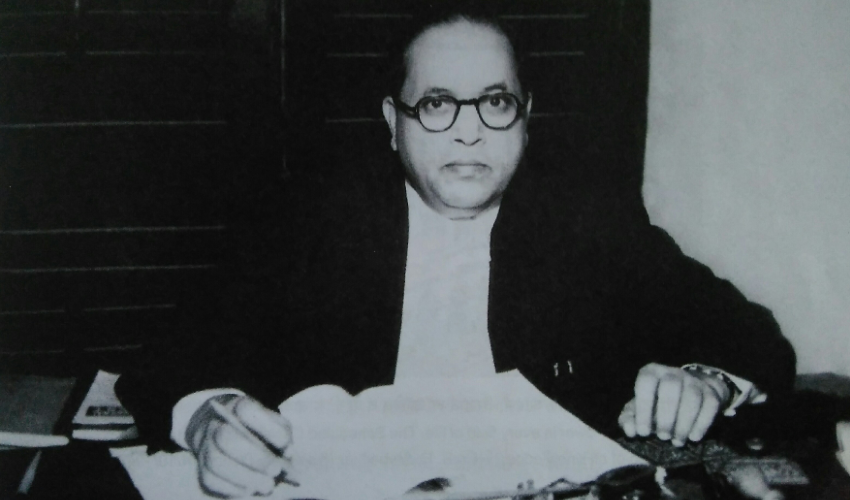
There are texts which serve as critical historical milestones and texts with a boundless sphere of influence. But some texts, even rarer, shine like a sun in the face of darkness. Not content with negotiating its fringes they aspire to eliminate it altogether by presenting an alternative. Sometimes, such texts live on in the future – like a comet blazing a trail – continuing to fight injustice long after they were born.
Dr. Bhimrao Ramji Ambedkar is widely known as the chief architect of India’s constitution, but we have carried earlier his speech, rendered while it was being passed into law, wherein he said: “We must make our political democracy a social democracy as well. Political democracy cannot last unless there lies, at the base of it, social democracy. What does social democracy mean? It means a way of life which recognizes liberty, equality and fraternity as the principles of life.”
It is for this reason that we are publishing this groundbreaking text today, 84 years and a fortnight after it was first published (on the 15th of May, 1936).
For, if the Constitution abolished untouchability, The Untouchability (Offences) Act, punishing those who practised it, was brought into force later, by a declaration in the Gazette of India on the 1st of June, 1955, exactly 65 years ago. During a discussion on this legislation in Rajya Sabha, on the 16th of September, 1954, Ambedkar said, “I think that is a very important matter, and I think that a good law ought to have a good and succinct name. What is the name of this Bill? A Bill to provide punishment for the practice of untouchability or the enforcement of any disability arising therefrom. I personally think that is a very clumsy name and very mouthful. What really should be the name of the Bill may be a matter of disability but I personally think that it ought to have been called, ‘The Civil Rights (Untouchables) Protection Act’. After all, what you are doing is nothing more than protecting their Civil Rights. The emphasis ought to have been therefore on civil rights. I venture to tell my friend in charge of the Bill that if he had referred to the case of ‘Negroes’ in the United States or to the civil war, he would have found that the Bill that he is now proposing to be passed by Parliament has had its predecessor in the United States and that Bill, if he will refer to it he will find a simply styled Civil Rights Protection Bill. Even the word ‘Negro’ is not used in it… ”
Here too, Babasaheb was emphasizing that what was urgently required, besides legal and political change, was a social and attitudinal transformation. “The Untouchability Offence Act, 1955, which was later amended and re-christened as the Protection of Civil Rights Act, 1976, proved to be ineffective in dealing with monstrous attacks on Dalits and Adivasis on an everyday basis,” writes scholar and activist Dr. Umakant. “That is how the Scheduled Caste and Scheduled Tribe (Prevention of Atrocities) Act, 1989 came into being.” Two years ago, a dilution of the provisions of this later act by the Supreme Court led to nationwide protests.
Which brings us back to the text in question. If our constitution lays the framework for an Indian nation, Ambedkar, through ‘Annihilation of Caste’, strikes at the roots of the deeply entrenched injustice that has to be uprooted to make that nation a reality.
Babasaheb’s ‘Annihilation… ’ is one of the most important Indian texts of the 20th century, equally relevant to the 21st century. It must be read as it was written, in its entirety. Any commentary or foreword is, at best, a reductivisation.
One could, for instance, note with a chill that the newspaper reports Ambedkar cites towards the beginning of his address – Balais in Central India being denied the most elementary rights by caste Hindus; “untouchables” in Kavitha and Zanu being denied education and the use of metal pots; those in Chakwara being beaten for daring to partake of a feast with ghee – are not entirely of a different order from newspaper reports of our times.
One could find illuminating, Ambedkar’s identification of missed points, patterns and connections in both Indian and world history:
– The fact that the foundation of the National Congress was accompanied by the foundation of the Social Conference and while the former became a party for political reform the latter chose to pursue (a limited) social reform and then the latter lost to the former. But why?
– His learnings from Prussia, Ireland and Rome: “Political constitutions have value and permanence only when they accurately express those conditions of forces which exist in practice within a society.”
– His observations on the impact of Puritanism, Islam, Buddhism, Maharashtrian saints, Guru Nanak: “History bears out the proposition that political revolutions have always been preceded by social and religious revolutions.”
Or, interestingly, Ambedkar’s questioning of socialist thinking: “The fallacy of the Socialists lies in supposing that because in the present stage of European Society property as a source of power is predominant, that the same is true of India, or that the same was true of Europe in the past.”
Also: “The first question I ask is: Will the proletariat of India combine to bring about this revolution? What will move men to such an action? … Men will not join in a revolution for the equalization of property unless they know that after the revolution is achieved they will be treated equally, and that there will be no discrimination of caste and creed.”
Breaking up his analysis of caste in Hindu society – as only a formidable advocate can – he explains why caste:
– is “a division of labourers”;
– is purported to “preserve a non-existent racial purity”;
– prevents Hindus from forming a real society (premised on having something “in common” not “similar things”);
– generates an anti-social spirit; prevents the upliftment of aboriginal tribes who have been criminalised;
– causes “higher” castes to keep “lower” castes down;
– prevents Hinduism from being a “missionary religion”;
– deprives Hindus of “fellow-feeling”;
– prevents reform and destroys”public spirit”.
Do keep in mind that Ambedkar had written this address for the Jat-Pat-Todal Mandal (in his own words, “a society of Caste Hindu Social Reformers” with the aim of eradicating “the Caste System from amongst the Hindus”). Hence, the emphasis on “Hindu society”.
After this Ambedkar lays out the alternative – an ideal society based on liberty, equality and fraternity – explaining each of these concepts, and how they can be made to work in tandem, to accomplish such a society.
You may choose to disagree with Babasaheb at certain points in ‘Annihilation… ’, such as a historical interpretation perhaps, or his outlook on ‘civilizing’ “savage” aboriginal tribes. But (besides for the fact that this was 1936 and Ambedkar an ever-evolving mind) the points that he makes are so nuanced and well-honed, that even questioning them will enrich your thinking.
“Originally I had planned to write a short address,” Ambedkar writes, of ‘Annihilation…’. “For my own convenience, as I had neither the time nor the energy to engage myself in the preparation of an elaborate thesis. It was the Mandal (the Jat-Pat-Todak Mandal) which asked me to deal with the subject exhaustively, and it was the Mandal which sent down to me a list of questions relating to the Caste System and asked me to answer them in the body of my address, as they were questions which were often raised in the controversy between the Mandal and its opponents, and which the Mandal found difficult to answer satisfactorily.”
We are carrying ‘Annihilation… ’ in two parts. You can look upon these as two pages, if you will. Part 1 begins with an exchange of letters which Ambedkar had published as a prologue to the speech in its first edition. They show us how the address came to be written, yet not delivered.
A note. While everything else is evident from the letters themselves, Ambedkar writes in a letter to the Mandal, of their issues with the content of his address: “I have reason to believe that my presence at the Sikh Prachar Conference held at Amritsar has had a good deal to do with the decision of the Committee. Nothing else can satisfactorily explain the sudden volte face shown by the Committee between the 14th and the 22nd April.” While not stated explicitly in the letter, Ambedkar had announced his decision to renounce Hinduism in a speech at this conference.
The letters are followed by the preface to the second and third edition, and then the first 14 of the 26 sections ‘Annihilation… ’ has been divided into. Part 2 will be published soon.
Prologue [How this speech came to be composed—and not delivered]
[1:] On December 12, 1935, I received the following letter from Mr. Sant Ram, the Secretary of the Jat-Pat-Todak Mandal:
My dear Doctor Saheb,
Many thanks for your kind letter of the 5th December. I have released it for press without your permission for which I beg your pardon, as I saw no harm in giving it publicity. You are a great thinker, and it is my well-considered opinion that none else has studied the problem of Caste so deeply as you have. I have always benefited myself and our Mandal from your ideas. I have explained and preached it in the Kranti many times and I have even lectured on it in many Conferences. I am now very anxious to read the exposition of your new formula— “It is not possible to break Caste without annihilating the religious notions on which it, the Caste system, is founded.” Please do explain it at length at your earliest convenience, so that we may take up the idea and emphasise it from press and platform. At present, it is not fully clear to me.
* * * * *
Our Executive Committee persists in having you as our President for our Annual Conference. We can change our dates to accommodate your convenience. Independent Harijans of Punjab are very much desirous to meet you and discuss with you their plans. So if you kindly accept our request and come to Lahore to preside over the Conference it will serve double purpose. We will invite Harijan leaders of all shades of opinion and you will get an opportunity of giving your ideas to them. The Mandal has deputed our Assistant Secretary, Mr. Indra Singh, to meet you at Bombay in Xmas and discuss with you the whole situation with a view to persuade you to please accept our request.
* * * * *
[2:] The Jat-Pat-Todak Mandal I was given to understand to be an organization of Caste Hindu Social Reformers, with the one and only aim, namely, to eradicate the Caste System from amongst the Hindus. As a rule, I do not like to take any part in a movement which is carried on by the Caste Hindus. Their attitude towards social reform is so different from mine that I have found it difficult to pull on with them. Indeed, I find their company quite uncongenial to me on account of our differences of opinion. Therefore when the Mandal first approached me, I declined their invitation to preside. The Mandal, however, would not take a refusal from me, and sent down one of its members to Bombay to press me to accept the invitation. In the end I agreed to preside. The Annual Conference was to be held at Lahore, the headquarters of the Mandal. The Conference was to meet at Easter, but was subsequently postponed to the middle of May 1936.
[3:] The Reception Committee of the Mandal has now cancelled the Conference. The notice of cancellation came long after my Presidential address had been printed. The copies of this address are now lying with me. As I did not get an opportunity to deliver the address from the presidential chair, the public has not had an opportunity to know my views on the problems created by the Caste System. To let the public know them, and also to dispose of the printed copies which are lying on my hand, I have decided to put the printed copies of the address in the market. The accompanying pages contain the text of that address.
[4:] The public will be curious to know what led to the cancellation of my appointment as the President of the Conference. At the start, a dispute arose over the printing of the address. I desired that the address should be printed in Bombay. The Mandal wished that it should be printed in Lahore, on the grounds of economy. I did not agree, and insisted upon having it printed in Bombay. Instead of their agreeing to my proposition, I received a letter signed by several members of the Mandal, from which I give the following extract:
27-3-36
Revered Dr. Ji,
Your letter of the 24th instant addressed to Sjt. Sant Ram has been shown to us. We were a little disappointed to read it. Perhaps you are not fully aware of the situation that has arisen here. Almost all the Hindus in the Punjab are against your being invited to this province. The Jat-Pat-Todak Mandal has been subjected to the bitterest criticism and has received censorious rebuke from all quarters. All the Hindu leaders among whom being Bhai Parmanand, M.L.A. (Ex-President, Hindu Maha Sabha), Mahatma Hans Raj, Dr. Gokal Chand Narang, Minister for Local Self-Government, Raja Narendra Nath, M.L.C. etc., have dissociated themselves from this step of the Mandal. Despite all this the runners of the Jat-Pat-Todak Mandal (the leading figure being Sjt. Sant Ram) are determined to wade through thick and thin but would not give up the idea of your presidentship. The Mandal has earned a bad name.
* * * * *
Under the circumstances it becomes your duty to co-operate with the Mandal. On the one hand, they are being put to so much trouble and hardship by the Hindus and if on the other hand you too augment their difficulties it will be a most sad coincidence of bad luck for them. We hope you will think over the matter and do what is good for us all.
* * * * *
[5:] This letter puzzled me greatly. I could not understand why the Mandal should displease me, for the sake of a few rupees, in the matter of printing the address. Secondly, I could not believe that men like Sir Gokal Chand Narang had really resigned as a protest against my selection as President, because I had received the following letter from Sir Gokal Chand himself:
5 Montgomery Road Lahore, 7-2-36
Dear Doctor Ambedkar,
I am glad to learn from the workers of the Jat-Pat-Todak Mandal that you have agreed to preside at their next anniversary to be held at Lahore during the Easter holidays, it will give me much pleasure if you stay with me while you are at Lahore. More when we meet.
Yours sincerely,
G.C. Narang
[6:] Whatever be the truth, I did not yield to this pressure. But even when the Mandal found that I was insisting upon having my address printed in Bombay, instead of agreeing to my proposal the Mandal sent me a wire that they were sending Mr. Har Bhagwan to Bombay to “talk over matters personally.” Mr. Har Bhagwan came to Bombay on the 9th of April. When I met Mr. Har Bhagwan, I found that he had nothing to say regarding the issue. Indeed he was so unconcerned regarding the printing of the address—whether it should be printed in Bombay or in Lahore—that he did not even mention it in the course of our conversation.
[7:] All that he was anxious for was to know the contents of the address. I was then convinced that in getting the address printed in Lahore, the main object of the Mandal was not to save money but to get at the contents of the address. I gave him a copy. He did not feel very happy with some parts of it. He returned to Lahore. From Lahore, he wrote to me the following letter:
Lahore April 14, 1936
My dear Doctor Sahib,
Since my arrival from Bombay, on the 12th, I have been indisposed owing to my having not slept continuously for 5 or 6 nights, which were spent in the train. Reaching here I came to know that you had come to Amritsar. I would have seen you there if I were well enough to go about. I have made over your address to Mr. Sant Ram for translation and he has liked it very much, but he is not sure whether it could be translated by him for printing before the 25th. In any case, it would have a wide publicity and we are sure it would wake the Hindus up from their slumber. The passage I pointed out to you at Bombay has been read by some of our friends with a little misgiving, and those of us who would like to see the Conference terminate without any untoward incident would prefer that at least the word “Veda” be left out for the time being. I leave this to your good sense. I hope, however, in your concluding paragraphs you will make it clear that the views expressed in the address are your own and that the responsibility does not lie on the Mandal. I hope you will not mind this statement of mine and would let us have 1,000 copies of the address, for which we shall, of course, pay. To this effect I have sent you a telegram today. A cheque of Rs. 100 is enclosed herewith which kindly acknowledge, and send us your bills in due time. I have called a meeting of the Reception Committee and shall communicate their decision to you immediately. In the meantime kindly accept my heartfelt thanks for the kindness shown to me and the great pains taken by you in the preparation of your address. You have really put us under a heavy debt of gratitude.
Yours sincerely,
Har Bhagwan
P.S.— Kindly send the copies of the address by passenger train as soon as it is printed, so that copies may be sent to the Press for publication.
[8:] Accordingly I handed over my manuscript to the printer with an order to print 1,000 copies. Eight days later, I received another letter from Mr. Har Bhagwan which I reproduce below:
Lahore, 22-4-36
Dear Dr. Ambedkar,
We are in receipt of your telegram and letter, for which kindly accept our thanks. In accordance with your desire, we have again postponed our Conference, but feel that it would have been much better to have it on the 25th and 26th, as the weather is growing warmer and warmer every day in the Punjab. In the middle of May it would be fairly hot, and the sittings in the day time would not be very pleasant and comfortable. However, we shall try our best to do all we can to make things as comfortable as possible, if it is held in the middle of May. There is, however, one thing that we have been compelled to bring to your kind attention. You will remember that when I pointed out to you the misgivings entertained by some of our people regarding your declaration on the subject of change of religion, you told me that it was undoubtedly outside the scope of the Mandal and that you had no intention to say anything from our platform in that connection. At the same time when the manuscript of your address was handed to me you assured me that that was the main portion of your address and that there were only two or three concluding paragraphs that you wanted to add. On receipt of the second instalment of your address we have been taken by surprise, as that would make it so lengthy, that we are afraid, very few people would read the whole of it. Besides that you have more than once stated in your address that you had decided to walk out of the fold of the Hindus and that that was your last address as a Hindu. You have also unnecessarily attacked the morality and reasonableness of the Vedas and other religious books of the Hindus, and have at length dwelt upon the technical side of Hindu religion, which has absolutely no connection with the problem at issue, so much so that some of the passages have become irrelevant and off the point. We would have been very pleased if you had confined your address to that portion given to me, or if an addition was necessary, it would have been limited to what you had written on Brahminism etc. The last portion which deals with the complete annihilation of Hindu religion and doubts the morality of the sacred books of the Hindus as well as a hint about your intention to leave the Hindu fold does not seem to me to be relevant. I would therefore most humbly request you on behalf of the people responsible for the Conference to leave out the passages referred to above, and close the address with what was given to me or add a few paragraphs on Brahminism. We doubt the wisdom of making the address unnecessarily provocative and pinching. There are several of us who subscribe to your feelings and would very much want to be under your banner for remodelling of the Hindu religion. If you had decided to get together persons of your cult I can assure you a large number would have joined your army of reformers from the Punjab. In fact, we thought you would give us a lead in the destruction of the evil of caste system, especially when you have studied the subject so thoroughly, and strengthen our hands by bringing about a revolution and making yourself as a nucleus in the gigantic effort, but declaration of the nature made by you when repeated loses its power, and becomes a hackneyed term. Under the circumstances, I would request you to consider the whole matter and make your address more effective by saying that you would be glad to take a leading part in the destruction of the caste system if the Hindus are willing to work in right earnest toward that end, even if they had to forsake their kith and kin and the religious notions. In case you do so, I am sanguine that you would find a ready response from the Punjab in such an endeavour. I shall be grateful if you will help us at this juncture as we have already undergone much expenditure and have been put to suspense, and let us know by the return of post that you have condescended to limit your address as above. In case, you still insist upon the printing of the address in toto, we very much regret it would not be possible—rather advisable for us to hold the Conference, and would prefer to postpone it sine die, although by doing so we shall be losing the goodwill of the people because of the repeated postponements. We should, however, like to point out that you have carved a niche in our hearts by writing such a wonderful treatise on the caste system, which excels all other treatises so far written and will prove to be a valuable heritage, so to say. We shall be ever indebted to you for the pains taken by you in its preparation.
Thanking you very much for your kindness and with best wishes.
I am, yours sincerely,
Har Bhagwan
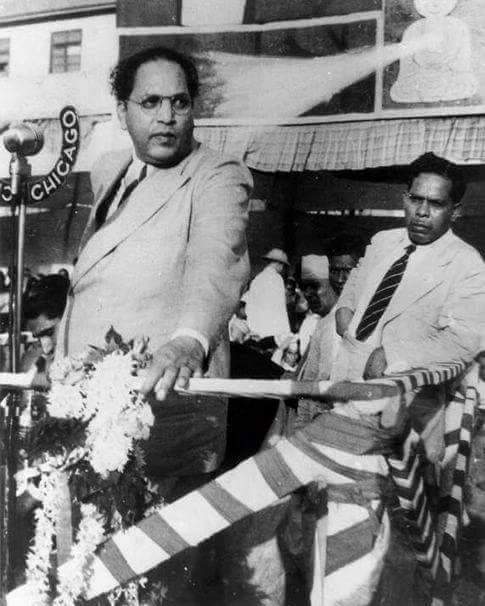
[9:] To this letter I sent the following reply :
27th April 1936
Dear Mr. Har Bhagwan,
I am in receipt of your letter of the 22nd April. I note with regret that the Reception Committee of the Jat-Pat-Todak Mandal “would prefer to postpone the Conference sine die” if I insisted upon printing the address in toto. In reply I have to inform you that I also would prefer to have the Conference cancelled—I do not like to use vague terms—if the Mandal insisted upon having my address pruned to suit its circumstances. You may not like my decision. But I cannot give up, for the sake of the honour of presiding over the Conference, the liberty which every President must-have in the preparation of the address. I cannot give up, for the sake of pleasing the Mandal, the duty which every President owes to the Conference over which he presides, to give it a lead which he thinks right and proper. The issue is one of principle, and I feel I must do nothing to compromise it in any way.
I would not have entered into any controversy as regards the propriety of the decision taken by the Reception Committee. But as you have given certain reasons which appear to throw the blame on me, I am bound to answer them. In the first place, I must dispel the notion that the views contained in that part of the address to which objection has been taken by the Committee have come to the Mandal as a surprise. Mr. Sant Ram, I am sure, will bear me out when I say that in reply to one of his letters I had said that the real method of breaking up the Caste System was not to bring about inter-caste dinners and inter-caste marriages but to destroy the religious notions on which Caste was founded, and that Mr. Sant Ram in return asked me to explain what he said was a novel point of view. It was in response to this invitation from Mr. Sant Ram that I thought I ought to elaborate in my address what I had stated in a sentence in my letter to him. You cannot, therefore, say that the views expressed are new. At any rate, they are not new to Mr. Sant Ram, who is the moving spirit and the leading light of your Mandal. But I go further and say that I wrote this part of my address not merely because I felt it desirable to do so. I wrote it because I thought that it was absolutely necessary to complete the argument. I am amazed to read that you characterize the portion of the speech to which your Committee objects as “irrelevant and off the point.” You will allow me to say that I am a lawyer and I know the rules of relevancy as well as any member of your Committee. I most emphatically maintain that the portion objected to is not only most relevant but is also important. It is in that part of the address that I have discussed the ways and means of breaking up the Caste System. It may be that the conclusion I have arrived at as to the best method of destroying Caste is startling and painful. You are entitled to say that my analysis is wrong. But you cannot say that in an address which deals with the problem of Caste it is not open to me to discuss how Caste can be destroyed.
Your other complaint relates to the length of the address. I have pleaded guilty to the charge in the address itself. But who is really responsible for this? I fear you have come rather late on the scene. Otherwise you would have known that originally I had planned to write a short address, for my own convenience, as I had neither the time nor the energy to engage myself in the preparation of an elaborate thesis. It was the Mandal which asked me to deal with the subject exhaustively, and it was the Mandal which sent down to me a list of questions relating to the Caste System and asked me to answer them in the body of my address, as they were questions which were often raised in the controversy between the Mandal and its opponents, and which the Mandal found difficult to answer satisfactorily. It was in trying to meet the wishes of the Mandal in this respect that the address has grown to the length to which it has. In view of what I have said, I am sure you will agree that the fault respecting the length of the address is not mine.
I did not expect that your Mandal would be so upset because I have spoken of the destruction of Hindu Religion. I thought it was only fools who were afraid of words. But lest there should be any misapprehension in the minds of the people, I have taken great pains to explain what I mean by religion and destruction of religion. I am sure that nobody, on reading my address, could possibly misunderstand me. That your Mandal should have taken a fright at mere words as “destruction of religion etc.,” notwithstanding the explanation that accompanies them, does not raise the Mandal in my estimation. One cannot have any respect or regard for men who take the position of the Reformer and then refuse even to see the logical consequences of that position, let alone following them out in action.
You will agree that I have never accepted to be limited in any way in the preparation of my address, and the question as to what the address should or should not contain was never even discussed between myself and the Mandal. I had always taken for granted that I was free to express in the address such views as I held on the subject. Indeed, until you came to Bombay on the 9th April, the Mandal did not know what sort of an address I was preparing. It was when you came to Bombay that I voluntarily told you that I had no desire to use your platform from which to advocate my views regarding change of religion by the Depressed Classes. I think I have scrupulously kept that promise in the preparation of the address. Beyond a passing reference of an indirect character where I say that “I am sorry I will not be here. . . etc.” I have said nothing about the subject in my address. When I see you object even to such a passing and so indirect a reference, I feel bound to ask, did you think that in agreeing to preside over your Conference I would be agreeing to suspend or to give up my views regarding change of faith by the Depressed Classes? If you did think so, I must tell you that I am in no way responsible for such a mistake on your part. If any of you had even hinted to me that in exchange for the honour you were doing me by electing as President, I was to abjure my faith in my programme of conversion, I would have told you in quite plain terms that I cared more for my faith than for any honour from you.
After your letter of the 14th, this letter of yours comes as a surprise to me. I am sure that anyone who reads them [both] will feel the same. I cannot account for this sudden volte face on the part of the Reception Committee. There is no difference in substance between the rough draft which was before the Committee when you wrote your letter of the 14th, and the final draft on which the decision of the Committee communicated to me in your letter under reply was taken. You cannot point out a single new idea in the final draft which is not contained in the earlier draft. The ideas are the same. The only difference is that they have been worked out in greater detail in the final draft. If there was anything to object to in the address, you could have said so on the 14th. But you did not. On the contrary, you asked me to print off 1,000 copies, leaving me the liberty to accept or not the verbal changes which you suggested. Accordingly I got 1,000 copies printed, which are now lying with me. Eight days later you write to say that you object to the address and that if it is not amended the Conference will be cancelled. You ought to have known that there was no hope of any alteration being made in the address. I told you when you were in Bombay that I would not alter a comma, that I would not allow any censorship over my address, and that you would have to accept the address as it came from me. I also told you that the responsibility for the views expressed in the address was entirely mine, and if they were not liked by the Conference I would not mind at all if the Conference passed a resolution condemning them. So anxious was I to relieve your Mandal from having to assume responsibility for my views—and also with the object of not getting myself entangled by too intimate an association with your Conference—I suggested to you that I desired to have my address treated as a sort of an inaugural address and not as a Presidential address, and that the Mandal should find some one else to preside over the Conference and deal with the resolutions. Nobody could have been better placed to take a decision on the 14th than your Committee. The Committee failed to do that, and in the meantime cost of printing has been incurred which, I am sure, with a little more firmness on the part of your Committee, could have been saved.
I feel sure that the views expressed in my address have little to do with the decision of your Committee. I have reason to believe that my presence at the Sikh Prachar Conference held at Amritsar has had a good deal to do with the decision of the Committee. Nothing else can satisfactorily explain the sudden volte face shown by the Committee between the 14th and the 22nd April. I must not however prolong this controversy, and must request you to announce immediately that the Session of the Conference which was to meet under my Presidentship is cancelled. All the grace [period] has by now run out, and I shall not consent to preside, even if your Committee agreed to accept my address as it is, in toto. I thank you for your appreciation of the pains I have taken in the preparation of the address. I certainly have profited by the labour, [even] if no one else does. My only regret is that I was put to such hard labour at a time when my health was not equal to the strain it has caused.
Yours sincerely,
B.R. Ambedkar
[10:] This correspondence will disclose the reasons which have led to the cancellation by the Mandal of my appointment as President, and the reader will be in a position to lay the blame where it ought properly to belong. This is I believe the first time when the appointment of a President is cancelled by the Reception Committee because it does not approve of the views of the President. But whether that is so or not, this is certainly the first time in my life to have been invited to preside over a Conference of Caste Hindus. I am sorry that it has ended in a tragedy. But what can anyone expect from a relationship so tragic as the relationship between the reforming sect of Caste Hindus and the self-respecting sect of Untouchables, where the former have no desire to alienate their orthodox fellows, and the latter have no alternative but to insist upon reform being carried out?
B.R. AMBEDKAR
Rajgriha, Dadar, Bombay 14
15th May 1936
[1:] The speech prepared by me for the Jat-Pat-Todak Mandal of Lahore has had an astonishingly warm reception from the Hindu public for whom it was primarily intended. The English edition of one thousand five hundred copies was exhausted within two months of its publication. It is has been translated into Gujarati and Tamil. It is being translated into Marathi, Hindi, Punjabi and Malayalam. The demand for the English text still continues unabated. To satisfy this demand it has become necessary to issue a Second Edition. Considerations of history and effectiveness of appeal have led me to retain the original form of the essay—namely, the speech form—although I was asked to recast it in the form of a direct narrative.
[2:] To this edition I have added two appendices. I have collected in Appendix I the two articles written by Mr. Gandhi by way of review of my speech in the Harijan, and his letter to Mr. Sant Ram, a member of the Jat-Pat-Todak Mandal.
[3:] In Appendix II, I have printed my views in reply to the articles of Mr. Gandhi collected in Appendix I. Besides Mr. Gandhi, many others have adversely criticised my views as expressed in my speech. But I have felt that in taking notice of such adverse comments, I should limit myself to Mr. Gandhi. This I have done not because what he has said is so weighty as to deserve a reply, but because to many a Hindu he is an oracle, so great that when he opens his lips it is expected that the argument must close and no dog must bark.
[4:] But the world owes much to rebels who would dare to argue in the face of the pontiff and insist that he is not infallible. I do not care about the credit which every progressive society must give to its rebels. I shall be satisfied if I make the Hindus realize that they are the sick men of India, and that their sickness is causing danger to the health and happiness of other Indians.
B.R. AMBEDKAR
[1:] The Second Edition of this Essay appeared in 1937, and was exhausted within a very short period. A new edition has been in demand for a long time. It was my intention to recast the essay so as to incorporate into it another essay of mine called “Castes in India, their Origin and their Mechanism,” which appeared in the issue of the Indian Antiquary Journal for May 1917. But as I could not find time, and as there is very little prospect of my being able to do so, and as the demand for it from the public is very insistent, I am content to let this be a mere reprint of the Second Edition.
[2:] I am glad to find that this essay has become so popular, and I hope that it will serve the purpose for which it was intended.
B.R. AMBEDKAR
22, Prithwiraj Road
New Delhi
1st December 1944
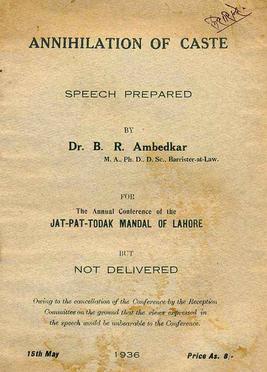
[1:] Friends,
I am really sorry for the members of the Jat-Pat-Todak Mandal who have so very kindly invited me to preside over this Conference. I am sure they will be asked many questions for having selected me as the President. The Mandal will be asked to explain as to why it has imported a man from Bombay to preside over a function which is held in Lahore. I believe the Mandal could easily have found someone better qualified than myself to preside on the occasion. I have criticised the Hindus. I have questioned the authority of the Mahatma whom they revere. They hate me. To them I am a snake in their garden. The Mandal will no doubt be asked by the politically-minded Hindus to explain why it has called me to fill this place of honour. It is an act of great daring. I shall not be surprised if some political Hindus regard it as an insult. This selection of me certainly cannot please the ordinary religiously-minded Hindus.
[2:] The Mandal may be asked to explain why it has disobeyed the Shastric injunction in selecting the President. According to the Shastras, the Brahmin is appointed to be the Guru for the three Varnas – ![]()
is a direction of the Shastras. The Mandal therefore knows from whom a Hindu should take his lessons and from whom he should not.
The Shastras do not permit a Hindu to accept anyone as his Guru merely because he is well-versed. This is made very clear by Ramdas, a Brahmin saint from Maharashtra, who is alleged to have inspired Shivaji to establish a Hindu Raj. In his Dasbodh, a socio-politico-religious treatise in Marathi verse, Ramdas asks, addressing the Hindus, can we accept an Antyaja to be our Guru because he is a Pandit (i.e. learned)? He gives an answer in the negative.
[3:] What replies to give to these questions is a matter which I must leave to the Mandal. The Mandal knows best the reasons which led it to travel to Bombay to select a president, to fix upon a man so repugnant to the Hindus, and to descend so low in the scale as to select an Antyaja—an untouchable—to address an audience of the Savarnas. As for myself, you will allow me to say that I have accepted the invitation much against my will, and also against the will of many of my fellow untouchables. I know that the Hindus are sick of me. I know that I am not a persona grata [=someone welcome] with them. Knowing all this, I have deliberately kept myself away from them. I have no desire to inflict myself upon them. I have been giving expression to my views from my own platform. This has already caused a great deal of heart-burning and irritation.
[4:] I have no desire to ascend the platform of the Hindus, to do within their sight what I have been doing within their hearing. If I am here it is because of your choice and not because of my wish. Yours is a cause of social reform. That cause has always made an appeal to me, and it is because of this that I felt I ought not to refuse an opportunity of helping the cause—especially when you think that I can help it. Whether what I am going to say today will help you in any way to solve the problem you are grappling with, is for you to judge. All I hope to do is to place before you my views on the problem.
[1:] The path of social reform, like the path to heaven (at any rate, in India), is strewn with many difficulties. Social reform in India has few friends and many critics. The critics fall into two distinct classes. One class consists of political reformers, and the other of the Socialists.
[2:] It was at one time recognized that without social efficiency, no permanent progress in the other fields of activity was possible; that owing to mischief wrought by evil customs, Hindu Society was not in a state of efficiency; and that ceaseless efforts must be made to eradicate these evils. It was due to the recognition of this fact that the birth of the National Congress was accompanied by the foundation of the Social Conference. While the Congress was concerned with defining the weak points in the political organisation of the country, the Social Conference was engaged in removing the weak points in the social organisation of the Hindu Society. For some time the Congress and the Conference worked as two wings of one common activity, and they held their annual sessions in the same pandal.
[3:] But soon the two wings developed into two parties, a ‘political reform party’ and a ‘social reform party’, between whom there raged a fierce controversy. The ‘political reform party’ supported the National Congress, and the ‘social reform party’ supported the Social Conference. The two bodies thus became two hostile camps. The point at issue was whether social reform should precede political reform. For a decade the forces were evenly balanced, and the battle was fought without victory to either side.
[4:] It was, however, evident that the fortunes of the Social Conference were ebbing fast. The gentlemen who presided over the sessions of the Social Conference lamented that the majority of the educated Hindus were for political advancement and indifferent to social reform; and that while the number of those who attended the Congress was very large, and the number who did not attend but who sympathized with it was even larger, the number of those who attended the Social Conference was very much smaller.
[5:] This indifference, this thinning of its ranks, was soon followed by active hostility from the politicians. Under the leadership of the late Mr. Tilak, the courtesy with which the Congress allowed the Social Conference the use of its pandal was withdrawn, and the spirit of enmity went to such a pitch that when the Social Conference desired to erect its own pandal, a threat to burn the pandal was held out by its opponents. Thus in the course of time the party in favour of political reform won, and the Social Conference vanished and was forgotten.
[6:] The speech delivered by Mr. W. C. Bonnerji in 1892 at Allahabad, as President of the eighth session of the Congress, sounds like a funeral oration on the death of the Social Conference, and is so typical of the Congress attitude that I venture to quote from it the following extract. Mr. Bonnerji said:
“I for one have no patience with those who say we shall not be fit for political reform until we reform our social system. I fail to see any connection between the two… Are we not fit (for political reform) because our widows remain unmarried and our girls are given in marriage earlier than in other countries? Because our wives and daughters do not drive about with us visiting our friends? Because we do not send our daughters to Oxford and Cambridge?” (Cheers [from the audience])
[7:] I have stated the case for political reform as put by Mr. Bonnerji. There were many who were happy that the victory went to the Congress. But those who believe in the importance of social reform may ask, is an argument such as that of Mr. Bonnerji’s final? Does it prove that the victory went to those who were in the right? Does it prove conclusively that social reform has no bearing on political reform? It will help us to understand the matter if I state the other side of the case. I will draw upon the treatment of the untouchables for my facts.
[8:] Under the rule of the Peshwas in the Maratha country, the untouchable was not allowed to use the public streets if a Hindu was coming along, lest he should pollute the Hindu by his shadow. The untouchable was required to have a black thread either on his wrist or around his neck, as a sign or a mark to prevent the Hindus from getting themselves polluted by his touch by mistake. In Poona, the capital of the Peshwa, the untouchable was required to carry, strung from his waist, a broom to sweep away from behind himself the dust he trod on, lest a Hindu walking on the same dust should be polluted. In Poona, the untouchable was required to carry an earthen pot hung around his neck wherever he went— for holding his spit, lest his spit falling on the earth should pollute a Hindu who might unknowingly happen to tread on it.
[9:] Let me take more recent facts. The tyranny practised by the Hindus upon the Balais, an untouchable community in Central India, will serve my purpose. You will find a report of this in the Times of India of 4th January 1928. The correspondent of the Times of India reported that high-caste Hindus—viz., Kalotas, Rajputs and Brahmins, including the Patels and Patwaris of the villages of Kanaria, Bicholi-Hafsi, Bicholi-Mardana, and about 15 other villages in the Indore district (of the Indore State)—informed the Balais of their respective villages that if they wished to live among them, they must conform to the following rules:
[10:] The Balais refused to comply; and the Hindu element proceeded against them. Balais were not allowed to get water from the village wells; they were not allowed to let go their cattle to graze. Balais were prohibited from passing through land owned by a Hindu, so that if the field of a Balai was surrounded by fields owned by Hindus, the Balai could have no access to his own field. The Hindus also let their cattle graze down the fields of Balais. The Balais submitted petitions to the Darbar [=Court of Indore] against these persecutions; but as they could get no timely relief, and the oppression continued, hundreds of Balais with their wives and children were obliged to abandon their homes—in which their ancestors had lived for generations—and to migrate to adjoining States: that is, to villages in Dhar, Dewas, Bagli, Bhopal, Gwalior and other States. What happened to them in their new homes may for the present be left out of our consideration.
[11:] The incident at Kavitha in Gujarat happened only last year. The Hindus of Kavitha ordered the untouchables not to insist upon sending their children to the common village school maintained by Government. What sufferings the untouchables of Kavitha had to undergo, for daring to exercise a civic right against the wishes of the Hindus, is too well known to need detailed description. Another instance occurred in the village of Zanu, in the Ahmedabad district of Gujarat. In November 1935 some untouchable women of well-to-do families started fetching water in metal pots. The Hindus looked upon the use of metal pots by untouchables as an affront to their dignity, and assaulted the untouchable women for their impudence.
[12:] A most recent event is reported from the village of Chakwara in Jaipur State. It seems from the reports that have appeared in the newspapers that an untouchable of Chakwara who had returned from a pilgrimage had arranged to give a dinner to his fellow untouchables of the village, as an act of religious piety. The host desired to treat the guests to a sumptuous meal, and the items served included ghee (butter) also. But while the assembly of untouchables was engaged in partaking of the food, the Hindus in their hundreds, armed with lathis, rushed to the scene, despoiled the food, and belaboured the untouchables— who left the food they had been served with and ran away for their lives. And why was this murderous assault committed on defenceless untouchables? The reason given is that the untouchable host was impudent enough to serve ghee, and his untouchable guests were foolish enough to taste it. Ghee is undoubtedly a luxury for the rich. But no one would think that consumption of ghee was a mark of high social status. The Hindus of Chakwara thought otherwise, and in righteous indignation avenged themselves for the wrong done to them by the untouchables, who insulted them by treating ghee as an item of their food— which they ought to have known could not be theirs, consistently with the dignity of the Hindus. This means that an untouchable must not use ghee, even if he can afford to buy it, since it is an act of arrogance towards the Hindus. This happened on or about the 1st of April 1936!
[13:] Having stated the facts, let me now state the case for social reform. In doing this, I will follow Mr. Bonnerji as nearly as I can, and ask the political-minded Hindus, “Are you fit for political power even though you do not allow a large class of your own countrymen like the untouchables to use public schools? Are you fit for political power even though you do not allow them the use of public wells? Are you fit for political power even though you do not allow them the use of public streets? Are you fit for political power even though you do not allow them to wear what apparel or ornaments they like? Are you fit for political power even though you do not allow them to eat any food they like?” I can ask a string of such questions. But these will suffice.
[14:] I wonder what would have been the reply of Mr. Bonnerji. I am sure no sensible man will have the courage to give an affirmative answer. Every Congressman who repeats the dogma of Mill that one country is not fit to rule another country, must admit that one class is not fit to rule another class. How is it then that the ‘social reform party’ lost the battle? To understand this correctly it is necessary to take note of the kind of social reform which the reformers were agitating for. In this connection it is necessary to make a distinction between social reform in the sense of the reform of the Hindu family, and social reform in the sense of the reorganization and reconstruction of the Hindu Society. The former has a relation to widow remarriage, child marriage, etc., while the latter relates to the abolition of the Caste System.
[15:] The Social Conference was a body which mainly concerned itself with the reform of the high-caste Hindu family. It consisted mostly of enlightened high-caste Hindus who did not feel the necessity for agitating for the abolition of Caste, or had not the courage to agitate for it. They felt quite naturally a greater urge to remove such evils as enforced widowhood, child marriages, etc.— evils which prevailed among them and which were personally felt by them. They did not stand up for the reform of the Hindu Society. The battle that was fought centered round the question of the reform of the family. It did not relate to social reform in the sense of the break-up of the Caste System. It [=the break-up of the Caste System] was never put in issue by the reformers. That is the reason why the Social Reform Party lost.
[16:] I am aware that this argument cannot alter the fact that political reform did in fact gain precedence over social reform. But the argument has this much value (if not more): it explains why social reformers lost the battle. It also helps us to understand how limited was the victory which the ‘political reform party’ obtained over the ‘social reform party’, and to understand that the view that social reform need not precede political reform is a view which may stand only when by social reform is meant the reform of the family. That political reform cannot with impunity take precedence over social reform in the sense of the reconstruction of society, is a thesis which I am sure cannot be controverted.
[17:] That the makers of political constitutions must take account of social forces is a fact which is recognized by no less a person than Ferdinand Lassalle, the friend and co-worker of Karl Marx. In addressing a Prussian audience in 1862, Lassalle said:
The constitutional questions are in the first instance not questions of right but questions of might. The actual constitution of a country has its existence only in the actual condition of force which exists in the country: hence political constitutions have value and permanence only when they accurately express those conditions of forces which exist in practice within a society.
[18:] But it is not necessary to go to Prussia. There is evidence at home. What is the significance of the Communal Award, with its allocation of political power in defined proportions to diverse classes and communities? In my view, its significance lies in this: that political constitution must take note of social organisation. It shows that the politicians who denied that the social problem in India had any bearing on the political problem were forced to reckon with the social problem in devising the Constitution. The Communal Award is, so to say, the nemesis following upon the indifference to and neglect of social reform. It is a victory for the Social Reform Party which shows that, though defeated, they were in the right in insisting upon the importance of social reform. Many, I know, will not accept this finding. The view is current—and it is pleasant to believe in it—that the Communal Award is unnatural and that it is the result of an unholy alliance between the minorities and the bureaucracy. I do not wish to rely on the Communal Award as a piece of evidence to support my contention, if it is said that it is not good evidence.
[19:] Let us turn to Ireland. What does the history of Irish Home Rule show? It is well-known that in the course of the negotiations between the representatives of Ulster and Southern Ireland, Mr. Redmond, the representative of Southern Ireland, in order to bring Ulster into a Home Rule Constitution common to the whole of Ireland, said to the representatives of Ulster: “Ask any political safeguards you like and you shall have them.” What was the reply that Ulstermen gave? Their reply was, “Damn your safeguards, we don’t want to be ruled by you on any terms.” People who blame the minorities in India ought to consider what would have happened to the political aspirations of the majority, if the minorities had taken the attitude which Ulster took. Judged by the attitude of Ulster to Irish Home Rule, is it nothing that the minorities agreed to be ruled by the majority (which has not shown much sense of statesmanship), provided some safeguards were devised for them? But this is only incidental. The main question is, why did Ulster take this attitude? The only answer I can give is that there was a social problem between Ulster and Southern Ireland: the problem between Catholics and Protestants, which is essentially a problem of Caste. That Home Rule in Ireland would be Rome Rule was the way in which the Ulstermen had framed their answer. But that is only another way of stating that it was the social problem of Caste between the Catholics and Protestants which prevented the solution of the political problem. This evidence again is sure to be challenged. It will be urged that here too the hand of the Imperialist was at work.
[20:] But my resources are not exhausted. I will give evidence from the History of Rome. Here no one can say that any evil genius was at work. Anyone who has studied the History of Rome will know that the Republican Constitution of Rome bore marks having strong resemblance to the Communal Award. When the kingship in Rome was abolished, the kingly power (or the Imperium) was divided between the Consuls and the Pontifex Maximus. In the Consuls was vested the secular authority of the King, while the latter took over the religious authority of the King. This Republican Constitution had provided that of the two Consuls, one was to be Patrician and the other Plebian. The same Constitution had also provided that of the Priests under the Pontifex Maximus, half were to be Plebians and the other half Patricians. Why is it that the Republican Constitution of Rome had these provisions—which, as I said, resemble so strongly the provisions of the Communal Award? The only answer one can get is that the Constitution of Republican Rome had to take account of the social division between the Patricians and the Plebians, who formed two distinct castes. To sum up, let political reformers turn in any direction they like: they will find that in the making of a constitution, they cannot ignore the problem arising out of the prevailing social order.
[21:] The illustrations which I have taken in support of the proposition that social and religious problems have a bearing on political constitutions seem to be too particular. Perhaps they are. But it should not be supposed that the bearing of the one on the other is limited. On the other hand, one can say that generally speaking, history bears out the proposition that political revolutions have always been preceded by social and religious revolutions. The religious Reformation started by Luther was the precursor of the political emancipation of the European people. In England, Puritanism led to the establishment of political liberty. Puritanism founded the new world. It was Puritanism that won the war of American Independence, and Puritanism was a religious movement.
[22:] The same is true of the Muslim Empire. Before the Arabs became a political power, they had undergone a thorough religious revolution started by the Prophet Mohammad. Even Indian History supports the same conclusion. The political revolution led by Chandragupta was preceded by the religious and social revolution of Buddha. The political revolution led by Shivaji was preceded by the religious and social reform brought about by the saints of Maharashtra. The political revolution of the Sikhs was preceded by the religious and social revolution led by Guru Nanak. It is unnecessary to add more illustrations. These will suffice to show that the emancipation of the mind and the soul is a necessary preliminary for the political expansion of the people.
[1:] Let me now turn to the Socialists. Can the Socialists ignore the problem arising out of the social order? The Socialists of India, following their fellows in Europe, are seeking to apply the economic interpretation of history to the facts of India. They propound that man is an economic creature, that his activities and aspirations are bound by economic facts, that property is the only source of power. They therefore preach that political and social reforms are but gigantic illusions, and that economic reform by equalization of property must have precedence over every other kind of reform. One may take issue with every one of these premises— on which rests the Socialists’ case for economic reform as having priority over every other kind of reform. One may contend that the economic motive is not the only motive by which man is actuated [=motivated]. That economic power is the only kind of power, no student of human society can accept.
[2:] That the social status of an individual by itself often becomes a source of power and authority, is made clear by the sway which the Mahatmas have held over the common man. Why do millionaires in India obey penniless Sadhus and Fakirs? Why do millions of paupers in India sell their trifling trinkets which constitute their only wealth, and go to Benares and Mecca? That religion is the source of power is illustrated by the history of India, where the priest holds a sway over the common man often greater than that of the magistrate, and where everything, even such things as strikes and elections, so easily takes a religious turn and can so easily be given a religious twist.
[3:] Take the case of the Plebians of Rome, as a further illustration of the power of religion over man. It throws great light on this point. The Plebians had fought for a share in the supreme executive under the Roman Republic, and had secured the appointment of a Plebian Consul elected by a separate electorate constituted by the Commitia Centuriata, which was an assembly of Plebians. They wanted a Consul of their own because they felt that the Patrician Consuls used to discriminate against the Plebians in carrying on the administration. They had apparently obtained a great gain, because under the Republican Constitution of Rome one Consul had the power of vetoing an act of the other Consul.
[4:] But did they in fact gain anything? The answer to this question must be in the negative. The Plebians never could get a Plebian Consul who could be said to be a strong man, and who could act independently of the Patrician Consul. In the ordinary course of things the Plebians should have got a strong Plebian Consul, in view of the fact that his election was to be by a separate electorate of Plebians. The question is, why did they fail in getting a strong Plebian to officiate as their Consul?
[5:] The answer to this question reveals the dominion which religion exercises over the minds of men. It was an accepted creed of the whole Roman populus [=people] that no official could enter upon the duties of his office unless the Oracle of Delphi declared that he was acceptable to the Goddess. The priests who were in charge of the temple of the Goddess of Delphi were all Patricians. Whenever therefore the Plebians elected a Consul who was known to be a strong party man and opposed to the Patricians—or “communal”, to use the term that is current in India—the Oracle invariably declared that he was not acceptable to the Goddess. This is how the Plebians were cheated out of their rights.
[6:] But what is worthy of note is that the Plebians permitted themselves to be thus cheated because they too, like the Patricians, held firmly the belief that the approval of the Goddess was a condition precedent to the taking charge by an official of his duties, and that election by the people was not enough. If the Plebians had contended that election was enough and that the approval by the Goddess was not necessary, they would have derived the fullest benefit from the political right which they had obtained. But they did not. They agreed to elect another, less suitable to themselves but more suitable to the Goddess— which in fact meant more amenable to the Patricians. Rather than give up religion, the Plebians give up the material gain for which they had fought so hard. Does this not show that religion can be a source of power as great as money, if not greater?
[7:] The fallacy of the Socialists lies in supposing that because in the present stage of European Society property as a source of power is predominant, that the same is true of India, or that the same was true of Europe in the past. Religion, social status, and property are all sources of power and authority, which one man has, to control the liberty of another. One is predominant at one stage; the other is predominant at another stage. That is the only difference. If liberty is the ideal, if liberty means the destruction of the dominion which one man holds over another, then obviously it cannot be insisted upon that economic reform must be the one kind of reform worthy of pursuit. If the source of power and dominion is, at any given time or in any given society, social and religious, then social reform and religious reform must be accepted as the necessary sort of reform.
[8:] One can thus attack the doctrine of the Economic Interpretation of History adopted by the Socialists of India. But I recognize that the economic interpretation of history is not necessary for the validity of the Socialist contention that equalization of property is the only real reform and that it must precede everything else. However, what I would like to ask the Socialists is this: Can you have economic reform without first bringing about a reform of the social order? The Socialists of India do not seem to have considered this question. I do not wish to do them an injustice. I give below a quotation from a letter which a prominent Socialist wrote a few days ago to a friend of mine, in which he said, “I do not believe that we can build up a free society in India so long as there is a trace of this ill-treatment and suppression of one class by another. Believing as I do in a socialist ideal, inevitably I believe in perfect equality in the treatment of various classes and groups. I think that Socialism offers the only true remedy for this as well as other problems.”
[9:] Now the question that I would like to ask is: Is it enough for a Socialist to say, “I believe in perfect equality in the treatment of the various classes?” To say that such a belief is enough is to disclose a complete lack of understanding of what is involved in Socialism. If Socialism is a practical programme and is not merely an ideal, distant and far off, the question for a Socialist is not whether he believes in equality. The question for him is whether he minds one class ill-treating and suppressing another class as a matter of system, as a matter of principle— and thus allowing tyranny and oppression to continue to divide one class from another.
[10:] Let me analyse the factors that are involved in the realization of Socialism, in order to explain fully my point. Now it is obvious that the economic reform contemplated by the Socialists cannot come about unless there is a revolution resulting in the seizure of power. That seizure of power must be by a proletariat. The first question I ask is: Will the proletariat of India combine to bring about this revolution? What will move men to such an action? It seems to me that, other things being equal, the only thing that will move one man to take such an action is the feeling that other men with whom he is acting are actuated by a feeling of equality and fraternity and—above all—of justice. Men will not join in a revolution for the equalization of property unless they know that after the revolution is achieved they will be treated equally, and that there will be no discrimination of caste and creed.
[11:] The assurance of a Socialist leading the revolution, that he does not believe in Caste, I am sure will not suffice. The assurance must be the assurance proceeding from a much deeper foundation— namely, the mental attitude of the compatriots towards one another in their spirit of personal equality and fraternity. Can it be said that the proletariat of India, poor as it is, recognises no distinctions except that of the rich and the poor? Can it be said that the poor in India recognize no such distinctions of caste or creed, high or low? If the fact is that they do, what unity of front can be expected from such a proletariat in its action against the rich? How can there be a revolution if the proletariat cannot present a united front?
[12:] Suppose for the sake of argument that by some freak of fortune a revolution does take place and the Socialists come into power; will they not have to deal with the problems created by the particular social order prevalent in India? I can’t see how a Socialist State in India can function for a second without having to grapple with the problems created by the prejudices which make Indian people observe the distinctions of high and low, clean and unclean. If Socialists are not to be content with the mouthing of fine phrases, if the Socialists wish to make Socialism a definite reality, then they must recognize that the problem of social reform is fundamental, and that for them there is no escape from it.
[13:] That the social order prevalent in India is a matter which a Socialist must deal with; that unless he does so he cannot achieve his revolution; and that if he does achieve it as a result of good fortune, he will have to grapple with the social order if he wishes to realize his ideal— is a proposition which in my opinion is incontrovertible. He will be compelled to take account of Caste after the revolution, if he does not take account of it before the revolution. This is only another way of saying that, turn in any direction you like, Caste is the monster that crosses your path. You cannot have political reform, you cannot have economic reform, unless you kill this monster.

[1:] It is a pity that Caste even today has its defenders. The defences are many. It is defended on the ground that the Caste System is but another name for division of labour; and if division of labour is a necessary feature of every civilized society, then it is argued that there is nothing wrong in the Caste System. Now the first thing that is to be urged against this view is that the Caste System is not merely a division of labour. It is also a division of labourers. Civilized society undoubtedly needs division of labour. But in no civilized society is division of labour accompanied by this unnatural division of labourers into watertight compartments. The Caste System is not merely a division of labourers which is quite different from division of labour— it is a hierarchy in which the divisions of labourers are graded one above the other. In no other country is the division of labour accompanied by this gradation of labourers.
[2:] There is also a third point of criticism against this view of the Caste System. This division of labour is not spontaneous, it is not based on natural aptitudes. Social and individual efficiency requires us to develop the capacity of an individual to the point of competency to choose and to make his own career. This principle is violated in the Caste System, in so far as it involves an attempt to appoint tasks to individuals in advance— selected not on the basis of trained original capacities, but on that of the social status of the parents.
[3:] Looked at from another point of view, this stratification of occupations which is the result of the Caste System is positively pernicious. Industry is never static. It undergoes rapid and abrupt changes. With such changes, an individual must be free to change his occupation. Without such freedom to adjust himself to changing circumstances, it would be impossible for him to gain his livelihood. Now the Caste System will not allow Hindus to take to occupations where they are wanted, if they do not belong to them by heredity. If a Hindu is seen to starve rather than take to new occupations not assigned to his Caste, the reason is to be found in the Caste System. By not permitting readjustment of occupations, Caste becomes a direct cause of much of the unemployment we see in the country.
[4:] As a form of division of labour, the Caste system suffers from another serious defect. The division of labour brought about by the Caste System is not a division based on choice. Individual sentiment, individual preference, has no place in it. It is based on the dogma of predestination. Considerations of social efficiency would compel us to recognize that the greatest evil in the industrial system is not so much poverty and the suffering that it involves, as the fact that so many persons have callings [=occupations] which make no appeal to those who are engaged in them. Such callings constantly provoke one to aversion, ill will, and the desire to evade.
[5:] There are many occupations in India which, on account of the fact that they are regarded as degraded by the Hindus, provoke those who are engaged in them to aversion. There is a constant desire to evade and escape from such occupations, which arises solely because of the blighting effect which they produce upon those who follow them, owing to the slight and stigma cast upon them by the Hindu religion. What efficiency can there be in a system under which neither men’s hearts nor their minds are in their work? As an economic organization Caste is therefore a harmful institution, in as much as it involves the subordination of man’s natural powers and inclinations to the exigencies of social rules.
[1:] Some have dug a biological trench in defence of the Caste System. It is said that the object of Caste was to preserve purity of race and purity of blood. Now ethnologists are of the opinion that men of pure race exist nowhere and that there has been a mixture of all races in all parts of the world. Especially is this the case with the people of India. Mr. D. R. Bhandarkar in his paper on “Foreign Elements in the Hindu Population” has stated that: “There is hardly a class or Caste in India which has not a foreign strain in it. There is an admixture of alien blood not only among the warrior classes —the Rajputs and the Marathas—but also among the Brahmins who are under the happy delusion that they are free from all foreign elements.” The Caste system cannot be said to have grown as a means of preventing the admixture of races, or as a means of maintaining purity of blood.
[2:] As a matter of fact [the] Caste system came into being long after the different races of India had commingled in blood and culture. To hold that distinctions of castes are really distinctions of race, and to treat different castes as though they were so many different races, is a gross perversion of facts. What racial affinity is there between the Brahmin of the Punjab and the Brahmin of Madras? What racial affinity is there between the untouchable of Bengal and the untouchable of Madras? What racial difference is there between the Brahmin of the Punjab and the Chamar of the Punjab? What racial difference is there between the Brahmin of Madras and the Pariah of Madras? The Brahmin of the Punjab is racially of the same stock as the Chamar of the Punjab, and the Brahmin of Madras is of the same race as the Pariah of Madras.
[3:] [The] Caste system does not demarcate racial division. [The] Caste system is a social division of people of the same race. Assuming it, however, to be a case of racial divisions, one may ask: What harm could there be if a mixture of races and of blood was permitted to take place in India by intermarriages between different castes? Men are no doubt divided from animals by so deep a distinction that science recognizes men and animals as two distinct species. But even scientists who believe in purity of races do not assert that the different races constitute different species of men. They are only varieties of one and the same species. As such they can interbreed and produce an offspring which is capable of breeding and which is not sterile.
[4:] An immense lot of nonsense is talked, about heredity and eugenics, in defence of the Caste System. Few would object to the Caste System if it was in accord with the basic principle of eugenics, because few can object to the improvement of the race by judicious mating. But one fails to understand how the Caste System secures judicious mating. [The] Caste System is a negative thing. It merely prohibits persons belonging to different castes from intermarrying. It is not a positive method of selecting which two among a given caste should marry.
[5:] If Caste is eugenic in origin, then the origin of sub-castes must also be eugenic. But can anyone seriously maintain that the origin of sub-castes is eugenic? I think it would be absurd to contend for such a proposition, and for a very obvious reason. If caste means race, then differences of sub-castes cannot mean differences of race, because sub-castes become ex hypothesia[= by hypothesis] sub-divisions of one and the same race. Consequently the bar against intermarrying and interdining between sub-castes cannot be for the purpose of maintaining purity of race or of blood. If sub-castes cannot be eugenic in origin, there cannot be any substance in the contention that Caste is eugenic in origin.
[6:] Again, if Caste is eugenic in origin one can understand the bar against intermarriage. But what is the purpose of the interdict placed on interdining between castes and sub-castes alike? Interdining cannot infect blood, and therefore cannot be the cause either of the improvement or of [the] deterioration of the race.
[7:] This shows that Caste has no scientific origin, and that those who are attempting to give it an eugenic basis are trying to support by science what is grossly unscientific. Even today, eugenics cannot become a practical possibility unless we have definite knowledge regarding the laws of heredity. Prof. Bateson in his Mendel’s Principles of Heredity says, “There is nothing in the descent of the higher mental qualities to suggest that they follow any single system of transmission. It is likely that both they and the more marked developments of physical powers result rather from the coincidence of numerous factors than from the possession of any one genetic element.” To argue that the Caste System was eugenic in its conception is to attribute to the forefathers of present-day Hindus a knowledge of heredity which even the modern scientists do not possess.
[8:] A tree should be judged by the fruits it yields. If Caste is eugenic, what sort of a race of men should it have produced? Physically speaking the Hindus are a C3 people. They are a race of Pygmies and dwarfs, stunted in stature and wanting in stamina. It is a nation 9/10ths of which is declared to be unfit for military service. This shows that the Caste System does not embody the eugenics of modern scientists. It is a social system which embodies the arrogance and selfishness of a perverse section of the Hindus who were superior enough in social status to set it in fashion, and who had the authority to force it on their inferiors.
[1:] Caste does not result in economic efficiency. Caste cannot improve, and has not improved, the race. Caste has however done one thing. It has completely disorganized and demoralized the Hindus.
[2:] The first and foremost thing that must be recognized is that Hindu Society is a myth. The name Hindu is itself a foreign name. It was given by the Mohammedans to the natives for the purpose of distinguishing themselves [from foreign name. It was given by the Mohammedans to the natives for the purpose of distinguishing themselves [from them]. It does not occur in any Sanskrit work prior to the Mohammedan invasion. They did not feel the necessity of a common name, because they had no conception of their having constituted a community. Hindu Society as such does not exist. It is only a collection of castes. Each caste is conscious of its existence. Its survival is the be-all and end-all of its existence. Castes do not even form a federation. A caste has no feeling that it is affiliated to other castes, except when there is a Hindu-Muslim riot. On all other occasions each caste endeavours to segregate itself and to distinguish itself from other castes.
[3:] Each caste not only dines among itself and marries among itself, but each caste prescribes its own distinctive dress. What other explanation can there be of the innumerable styles of dress worn by the men and women of India, which so amuse the tourists? Indeed the ideal Hindu must be like a rat living in his own hole, refusing to have any contact with others. There is an utter lack among the Hindus of what the sociologists call “consciousness of kind.” There is no Hindu consciousness of kind. In every Hindu the consciousness that exists is the consciousness of his caste. That is the reason why the Hindus cannot be said to form a society or a nation.
[4:] There are, however, many Indians whose patriotism does not permit them to admit that Indians are not a nation, tha they are only an amorphous mass of people. They have insisted that underlying the apparent diversity there is a fundamental unity which marks the life of the Hindus, inasmuch as there is a similarity of those habits and customs, beliefs and thoughts, which obtain all over the continent of India. Similarity in habits and customs, beliefs and thoughts, there is. But one cannot accept the conclusion that therefore, the Hindus constitute a society. To do so is to misunderstand the essentials which go to make up a society. Men do not become a society by living in physical proximity, any more than a man ceases to be a member of his society by living so many miles away from other men.
[5:] Secondly, similarity in habits and customs, beliefs and thoughts, is not enough to constitute men into society. Things may be passed physically from one to another like bricks. In the same way habits and customs, beliefs and thoughts of one group may be taken over by another group, and there may thus appear a similarity between the two. Culture spreads by diffusion, and that is why one finds similarity between various primitive tribes in the matter of their habits and customs, beliefs and thoughts, although they do not live in proximity. But no one could say that because there was this similarity, the primitive tribes constituted one society. This is because similarity in certain things is not enough to constitute a society.
[6:] Men constitute a society because they have things which they possess in common. To have similar things is totally different from possessing things in common. And the only way by which men can come to possess things in common with one another is by being in communication with one another. This is merely another way of saying that Society continues to exist by communication—indeed, in communication. To make it concrete, it is not enough if men act in a way which agrees with the acts of others. Parallel activity, even if similar, is not sufficient to bind men into a society.
[7:] This is proved by the fact that the festivals observed by the different castes amongst the Hindus are the same. Yet these parallel performances of similar festivals by the different castes have not bound them into one integral whole. For that purpose what is necessary is for a man to share and participate in a common activity, so that the same emotions are aroused in him that animate the others. Making the individual a sharer or partner in the associated activity, so that he feels its success as his success, its failure as his failure, is the real thing that binds men and makes a society of them. The Caste System prevents common activity; and by preventing common activity, it has prevented the Hindus from becoming a society with a unified life and a consciousness of its own being.
[1:] The Hindus often complain of the isolation and exclusiveness of a gang or a clique and blame them for anti-social spirit. But they conveniently forget that this anti-social spirit is the worst feature of their own Caste System. One caste enjoys singing a hymn of hate against another caste as much as the Germans enjoyed singing their hymn of hate against the English during the last war [=World War I]. The literature of the Hindus is full of caste genealogies in which an attempt is made to give a noble origin to one caste and an ignoble origin to other castes. The Sahyadrikhand is a attempt is made to give a noble origin to one caste and an ignoble origin to other castes. The Sahyadrikhand is a notorious instance of this class of literature.
[2:] This anti-social spirit is not confined to caste alone. It has gone deeper and has poisoned the mutual relations of the sub-castes as well. In my province the Golak Brahmins, Deorukha Brahmins, Karada Brahmins, Palshe Brahmins, and Chitpavan Brahmins all claim to be sub-divisions of the Brahmin caste. But the anti-social spirit that prevails between them is quite as marked and quite as virulent as the anti-social spirit that prevails between them and other non-Brahmin castes. There is nothing strange in this. An anti-social spirit is found wherever one group has “interests of its own” which shut it out from full interaction with other groups, so that its prevailing purpose is protection of what it has got.
[3:] This anti-social spirit, this spirit of protecting its own interests, is as much a marked feature of the different castes in their isolation from one another as it is of nations in their isolation. The Brahmin’s primary concern is to protect “his interest” against those of the non-Brahmins; and the non-Brahmins’ primary concern is to protect their interests against those of the Brahmins. The Hindus, therefore, are not merely an assortment of castes, but are so many warring groups, each living for itself and for its selfish ideal.
[4:] There is another feature of caste which is deplorable. The ancestors of the present-day English fought on one side or the other in the Wars of the Roses and the Cromwellian War. But the descendants of those who fought on the one side do not bear any animosity—any grudge—against the descendents of those who fought on the other side. The feud is forgotten. But the present-day non-Brahmins cannot forgive the present-day Brahmins for the insult their ancestors gave to Shivaji. The present-day Kayasthas will not forgive the present-day Brahmins for the infamy cast upon their forefathers by the forefathers of the latter. To what is this difference due? Obviously to the Caste System. The existence of Caste and Caste Consciousness has served to keep the memory of past feuds between castes green, and has prevented solidarity.
[1:] The recent [constitutional] discussion about the excluded and partially included areas has served to draw attention to the position of what are called the aboriginal tribes in India. They number about 13 millions, if not more. Apart from the question of whether their exclusion from the new Constitution is proper or improper, the fact still remains that these aborigines have remained in their primitive uncivilized state in a land which boasts of a civilization thousands of years old. Not only are they not civilized, but some of them follow pursuits which have led to their being classified as criminals.
[2:] Thirteen millions of people living in the midst of civilization are still in a savage state, and are leading the life of hereditary criminals!! But the Hindus have never felt ashamed of it. This is a phenomenon which in my view is quite unparalleled. What is the cause of this shameful state of affairs? Why has no attempt been made to civilize these aborigines and to lead them to take to a more honourable way of making a living?
[3:] The Hindus will probably seek to account for this savage state of the aborigines by attributing to them congenital stupidity. They will probably not admit that the aborigines have remained savages because they had made no effort to civilize them, to give them medical aid, to reform them, to make them good citizens. But supposing a Hindu wished to do what the Christian missionary is doing for these aborigines, could he have done it? I submit not. Civilizing the
aborigines means adopting them as your own, living in their midst, and cultivating fellow-feeling—in short, loving them. How is it possible for a Hindu to do this? His whole life is one anxious effort to preserve his caste. Caste is his precious possession which he must save at any cost. He cannot consent to lose it by establishing contact with the aborigines, the remnants of the hateful Anaryas of the Vedic days.
[4:] Not that a Hindu could not be taught the sense of duty to fallen humanity, but the trouble is that no amount of sense of duty can enable him to overcome his duty to preserve his caste. Caste is, therefore, the real explanation as to why the Hindu has let the savage remain a savage in the midst of his civilization without blushing, or without feeling any sense of remorse or repentance. The Hindu has not realized that these aborigines are a source of potential danger. If these savages remorse or repentance. The Hindu has not realized that these aborigines are a source of potential danger. If these savages remain savages, they may not do any harm to the Hindus. But if they are reclaimed by non-Hindus and converted to their faiths, they will swell the ranks of the enemies of the Hindus. If this happens, the Hindu will have to thank himself and his Caste System.
[1:] Not only has the Hindu made no effort for the humanitarian cause of civilizing the savages, but the higher-caste Hindus have deliberately prevented the lower castes who are within the pale of Hinduism from rising to the cultural level of the higher castes. I will give two instances, one of the Sonars and the other of the Pathare Prabhus. Both are communities quite well-known in Maharashtra. Like the rest of the communities desiring to raise their status, these two communities were at one time endeavouring to adopt some of the ways and habits of the Brahmins.
[2:] The Sonars were styling themselves Daivadnya Brahmins and were wearing their “dhotis” with folds in them, and using the word namaskar for salutation. Both the folded way of wearing the “dhoti” and the namaskar were special to the Brahmins. The Brahmins did not like this imitation and this attempt by Sonars to pass off as Brahmins. Under the authority of the Peshwas, the Brahmins successfully put down this attempt on the part of the Sonars to adopt the ways of the Brahmins. They even got the President of the Councils of the East India Company’s settlement in Bombay to issue a prohibitory order against the Sonars residing in Bombay.
[3:] At one time the Pathare Prabhus had widow-remarriage as a custom of their caste. This custom of widowremarriage was later on looked upon as a mark of social inferiority by some members of the caste, especially because it was contrary to the custom prevalent among the Brahmins. With the object of raising the status of their community, some Pathare Prabhus sought to stop this practice of widow-remarriage that was prevalent in their caste. The community was divided into two camps, one for and the other against the innovation. The Peshwas took the side of those in favou of widow-remarriage, and thus virtually prohibited the Pathare Prabhus from following the ways of the Brahmins.
[4:] The Hindus criticise the Mohammedans for having spread their religion by the use of the sword. They also ridicule Christianity on the score of the Inquisition. But really speaking, who is better and more worthy of our respect—the Mohammedans and Christians who attempted to thrust down the throats of unwilling persons what they regarded as necessary for their salvation, or the Hindu who would not spread the light, who would endeavour to keep others in
darkness, who would not consent to share his intellectual and social inheritance with those who are ready and willing to make it a part of their own make-up? I have no hesitation in saying that if the Mohammedan has been cruel, the Hind has been mean; and meanness is worse than cruelty.
[1:] Whether the Hindu religion was or was not a missionary religion has been a controversial issue. Some hold the view that it was never a missionary religion. Others hold that it was. That the Hindu religion was once a missionary religion must be admitted. It could not have spread over the face of India, if it was not a missionary religion. That today it is not a missionary religion is also a fact which must be accepted. The question therefore is not whether or not the Hindu religion was a missionary religion. The real question is, why did the Hindu religion cease to be a missionary religion?
[2:] My answer is this: the Hindu religion ceased to be a missionary religion when the Caste System grew up among the Hindus. Caste is inconsistent with conversion. Inculcation of beliefs and dogmas is not the only problem that is involved in conversion. To find a place for the convert in the social life of the community is another, and a much more important, problem that arises in connection with conversion. That problem is where to place the convert, in what caste? It is a problem that arises in connection with conversion. That problem is where to place the convert, in what caste? It is a problem which must baffle every Hindu wishing to make aliens converts to his religion.
[3:] Unlike a club, the membership of a caste is not open to all and sundry. The law of Caste confines its membership to persons born in the caste. Castes are autonomous, and there is no authority anywhere to compel a caste to admit a newcomer to its social life. Hindu Society being a collection of castes, and each caste being a closed corporation, there is no place for a convert. Thus it is the caste which has prevented the Hindus from expanding and from absorbing other religious communities. So long as Caste remains, Hindu religion cannot be made a missionary religion, and Shudhi will be both a folly and a futility.
[1:] The reasons which have made Shudhi impossible for Hindus are also responsible for making Sanghatan impossible. The idea underlying Sanghatan is to remove from the mind of the Hindu that timidity and cowardice which so painfully mark him off from the Mohammedan and the Sikh, and which have led him to adopt the low ways of treachery and cunning for protecting himself. The question naturally arises: From where does the Sikh or the Mohammedan derive his strength, which makes him brave and fearless? I am sure it is not due to relative superiority of physical strength, diet, or drill. It is due to the strength arising out of the feeling that all Sikhs will come to the rescue of a Sikh when he is in danger, and that all Mohammedans will rush to save a Muslim if he is attacked.
[2:] The Hindu can derive no such strength. He cannot feel assured that his fellows will come to his help. Being one and fated to be alone, he remains powerless, develops timidity and cowardice, and in a fight surrenders or runs away. The Sikh as well as the Muslim stands fearless and gives battle, because he knows that though one he will not be alone. The presence of this belief in the one helps him to hold out, and the absence of it in the other makes him to give way.
[3:] If you pursue this matter further and ask what is it that enables the Sikh and the Mohammedan to feel so assured, and why is the Hindu filled with such despair in the matter of help and assistance, you will find that the reasons for this difference lie in the difference in their associated mode of living. The associated mode of life practised by the Sikhs and the Mohammedans produces fellow-feeling. The associated mode of life of the Hindus does not. Among Sikhs and Muslims there is a social cement which makes them Bhais. Among Hindus there is no such cement, and one Hindu does not regard another Hindu as his Bhai. This explains why a Sikh says and feels that one Sikh, or one Khalsa, is equal to sava lakh men. This explains why one Mohammedan is equal to a crowd of Hindus. This difference is undoubtedly a difference due to Caste. So long as Caste remains, there will be no Sanghatan; and so long as there is no Sanghatan the Hindu will remain weak and meek.
[4:] The Hindus claim to be a very tolerant people. In my opinion this is a mistake. On many occasions they can be intolerant, and if on some occasions they are tolerant, that is because they are too weak to oppose or too indifferent to oppose. This indifference of the Hindus has become so much a part of their nature that a Hindu will quite meekly tolerate an insult as well as a wrong. You see amongst them, to use the words of Morris, “The great treading down the little, the strong beating down the weak, cruel men fearing not, kind men daring not and wise men caring not.” With the Hindu Gods all-forbearing, it is not difficult to imagine the pitiable condition of the wronged and the oppressed among the Hindus. Indifferentism is the worst kind of disease that can infect a people. Why is the Hindu so indifferent? In my opinion this indifferentism is the result of the Caste System, which has made Sanghatan and co-operation even for a good cause impossible.
[1:] The assertion by the individual of his own opinions and beliefs, his own independence and interest—as over against group standards, group authority, and group interests—is the beginning of all reform. But whether the reform will continue depends upon what scope the group affords for such individual assertion. If the group is tolerant and fairminded in dealing with such individuals, they will continue to assert [their beliefs], and in the end will succeed in
converting their fellows. On the other hand if the group is intolerant, and does not bother about the means it adopts to stifle such individuals, they will perish and the reform will die out.
[2:] Now a caste has an unquestioned right to excommunicate any man who is guilty of breaking the rules of the caste; and when it is realized that excommunication involves a complete cesser [= cessation] of social intercourse, it will be agreed that as a form of punishment there is really little to choose between excommunication and death. No wonder individual Hindus have not had the courage to assert their independence by breaking the barriers of Caste.
[3:] It is true that man cannot get on with his fellows. But it is also true that he cannot do without them. He would like to have the society of his fellows on his terms. If he cannot get it on his terms, then he will be ready to have it on any terms, even amounting to complete surrender. This is because he cannot do without society. A caste is ever ready to take advantage of the helplessness of a man, and to insist upon complete conformity to its code in letter and in spirit.
[4:] A caste can easily organize itself into a conspiracy to make the life of a reformer a hell; and if a conspiracy is a crime, I do not understand why such a nefarious act as an attempt to excommunicate a person for daring to act contrary to the rules of caste should not be made an offence punishable in law. But as it is, even law gives each caste an autonomy to regulate its membership and punish dissenters with excommunication. Caste in the hands of the orthodox has been a powerful weapon for persecuting the reformers and for killing all reform.
[1:] The effect of caste on the ethics of the Hindus is simply deplorable. Caste has killed public spirit. Caste has destroyed the sense of public charity. Caste has made public opinion impossible. A Hindu’s public is his caste. His responsibility i only to his caste. His loyalty is restricted only to his caste. Virtue has become caste-ridden, and morality has become castebound. There is no sympathy for the deserving. There is no appreciation of the meritorious. There is no charity to the needy. Suffering as such calls for no response. There is charity, but it begins with the caste and ends with the caste. There is sympathy, but not for men of other castes.
[2:] Would a Hindu acknowledge and follow the leadership of a great and good man? The case of a Mahatma apart, the answer must be that he will follow a leader if he is a man of his caste. A Brahmin will follow a leader only if he is a Brahmin, a Kayastha if he is a Kayastha, and so on. The capacity to appreciate merits in a man, apart from his caste, does not exist in a Hindu. There is appreciation of virtue, but only when the man is a fellow caste-man. The whole morality is as bad as tribal morality. My caste-man, right or wrong; my caste-man, good or bad. It is not a case of standing by virtue or not standing by vice. It is a case of standing by, or not standing by, the caste. Have not Hindus committed treason against their country in the interests of their caste?
[1:] I would not be surprized if some of you have grown weary listening to this tiresome tale of the sad effects which caste has produced. There is nothing new in it. I will therefore turn to the constructive side of the problem. What is your ideal society if you do not want caste, is a question that is bound to be asked of you. If you ask me, my ideal would be a society based on Liberty, Equality, and Fraternity. And why not?
[2:] What objection can there be to Fraternity? I cannot imagine any. An ideal society should be mobile, should be full of channels for conveying a change taking place in one part to other parts. In an ideal society there should be many interests channels for conveying a change taking place in one part to other parts. In an ideal society there should be many interests consciously communicated and shared. There should be varied and free points of contact with other modes of association. In other words there must be social endosmosis. This is fraternity, which is only another name for democracy. Democracy is not merely a form of government. It is primarily a mode of associated living, of conjoint communicated experience. It is essentially an attitude of respect and reverence towards one’s fellow men.
[3:] Any objection to Liberty? Few object to liberty in the sense of a right to free movement, in the sense of a right to life and limb. There is no objection to liberty in the sense of a right to property, tools, and materials, as being necessary for earning a living, to keep the body in a due state of health. Why not allow a person the liberty to benefit from an effective and competent use of a person’s powers? The supporters of Caste who would allow liberty in the sense of a right to life, limb, and property, would not readily consent to liberty in this sense, inasmuch as it involves liberty to choose one’s profession.
[4:] But to object to this kind of liberty is to perpetuate slavery. For slavery does not merely mean a legalized form of subjection. It means a state of society in which some men are forced to accept from others the purposes which control their conduct. This condition obtains even where there is no slavery in the legal sense. It is found where, as in the Caste System, some persons are compelled to carry on certain prescribed callings which are not of their choice.
[5:] Any objection to equality? This has obviously been the most contentious part of the slogan of the French Revolution. The objections to equality may be sound, and one may have to admit that all men are not equal. But what of that? Equality may be a fiction, but nonetheless one must accept it as the governing principle. A man’s power is dependent upon (1) physical heredity; (2) social inheritance or endowment in the form of parental care, education, accumulation of scientific knowledge, everything which enables him to be more efficient than the savage; and finally, (3) on his own efforts. In all these three respects men are undoubtedly unequal. But the question is, shall we treat them as unequal because they are unequal? This is a question which the opponents of equality must answer.
[6:] From the standpoint of the individualist, it may be just to treat men unequally so far as their efforts are unequal. It may be desirable to give as much incentive as possible to the full development of everyone’s powers. But what would happen if men were treated as unequally as they are unequal in the first two respects? It is obvious that those individuals also in whose favour there is birth, education, family name, business connections, and inherited wealth, would be selected in the race. But selection under such circumstances would not be a selection of the able. It would be the selection of the privileged. The reason, therefore, which requires that in the third respect [of those described in the paragraph above] we should treat men unequally, demands that in the first two respects we should treat men as equally as possible.
[7:] On the other hand, it can be urged that if it is good for the social body to get the most out of its members, it can get the most out of them only by making them equal as far as possible at the very start of the race. That is one reason why we cannot escape equality. But there is another reason why we must accept equality. A statesman is concerned with vast numbers of people. He has neither the time nor the knowledge to draw fine distinctions and to treat each one equitably, i.e. according to need or according to capacity. However desirable or reasonable an equitable treatment of men may be, humanity is not capable of assortment and classification. The statesman, therefore, must follow some rough and ready rule, and that rough and ready rule is to treat all men alike, not because they are alike but because classification and assortment is impossible. The doctrine of equality is glaringly fallacious but, taking all in all, it is the only way a statesman can proceed in politics—which is a severely practical affair and which demands a severely practical test.
Dr. Bhimrao Ramji Ambedkar can be said to be one of the foremost architects, not just of the Indian constitution, but also of modernity in India as we know it. His excellence spanned many disciplines. As a jurist, economist, political leader and advocate of social justice, he is one of the twentieth century’s most formidable minds, whose voice campaigned tirelessly, and impactfully, for Dalits and other marginalised Indians. He was also independent India’s first law and justice minister. You can read more about his life here.
| 2500 BC - Present | |
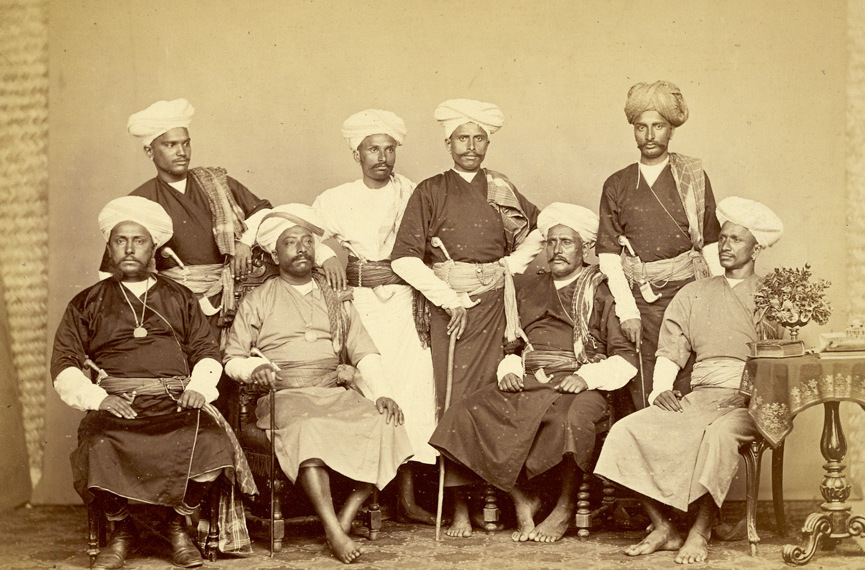
|
2500 BC - Present |
| Tribal History: Looking for the Origins of the Kodavas | |
| 2200 BC to 600 AD | |
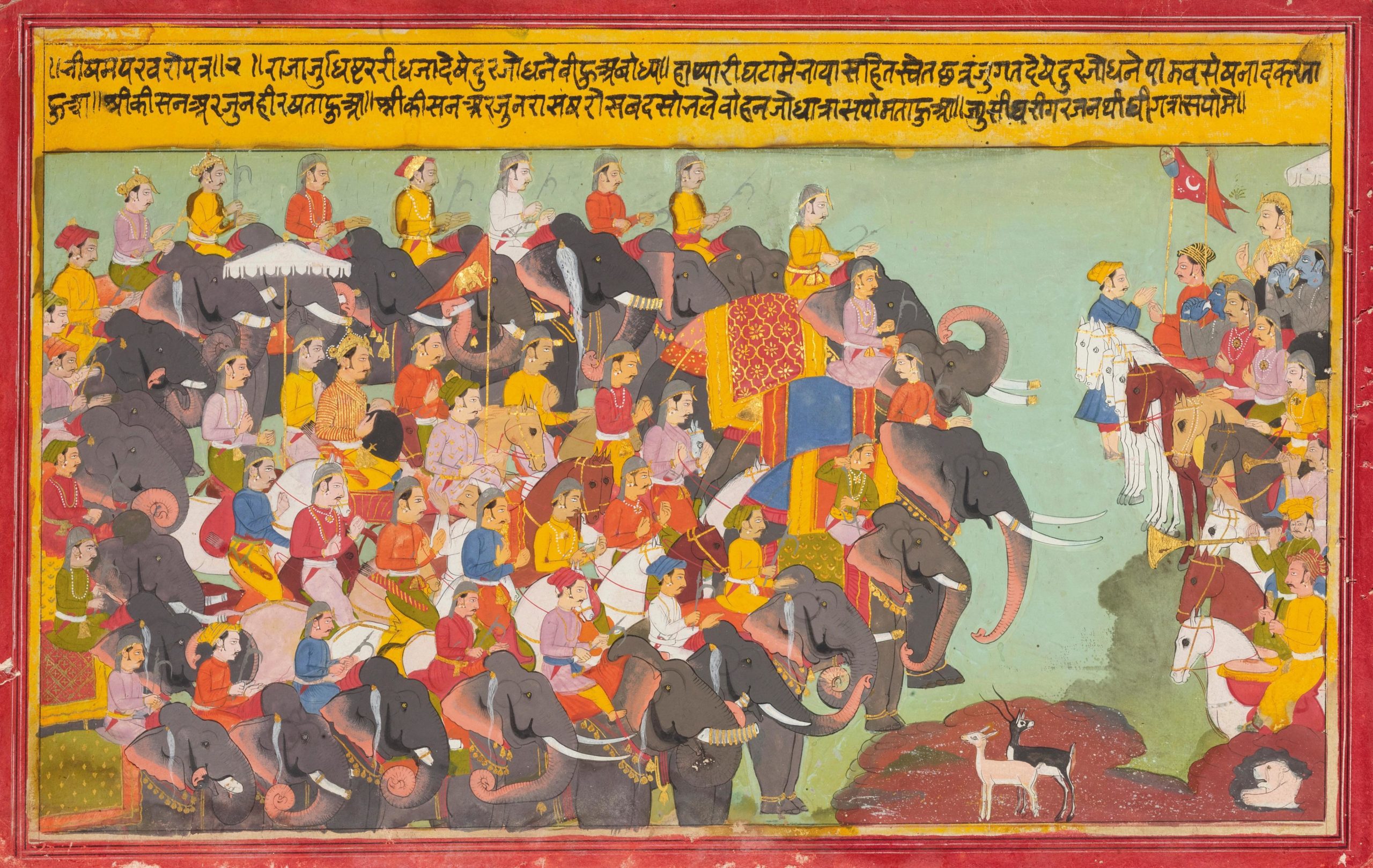
|
2200 BC to 600 AD |
| War, Political Violence and Rebellion in Ancient India | |
| 400 BC to 1001 AD | |
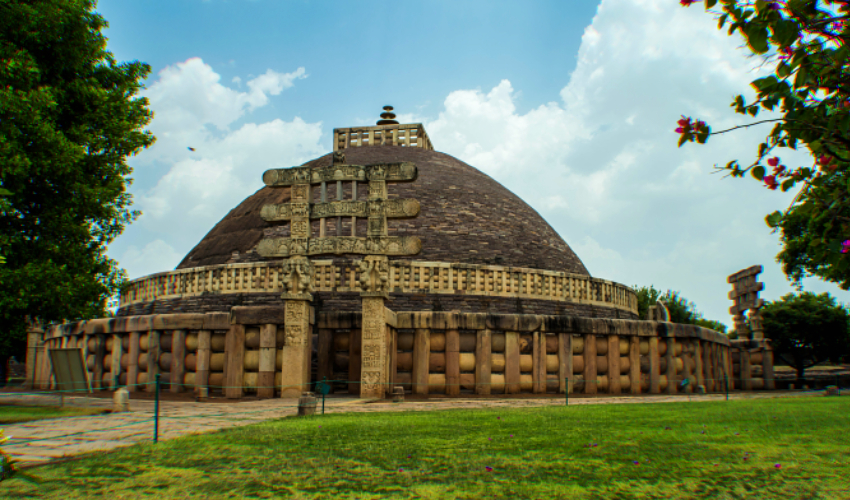
|
400 BC to 1001 AD |
| The Dissent of the ‘Nastika’ in Early India | |
| 600CE-1200CE | |
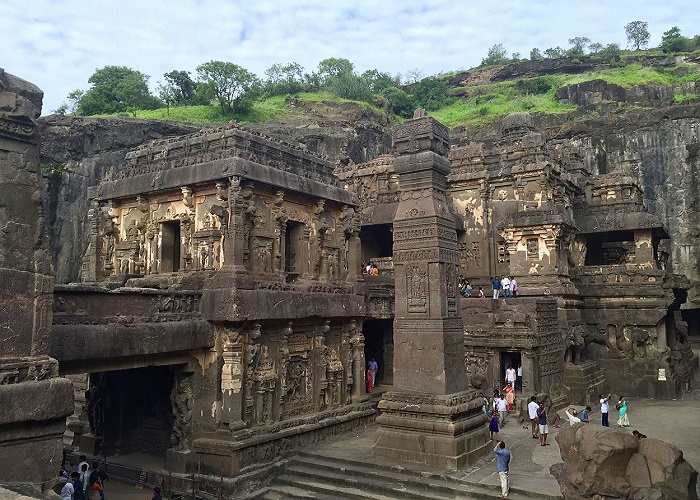
|
600CE-1200CE |
| The Other Side of the Vindhyas: An Alternative History of Power | |
| c. 700 - 1400 AD | |
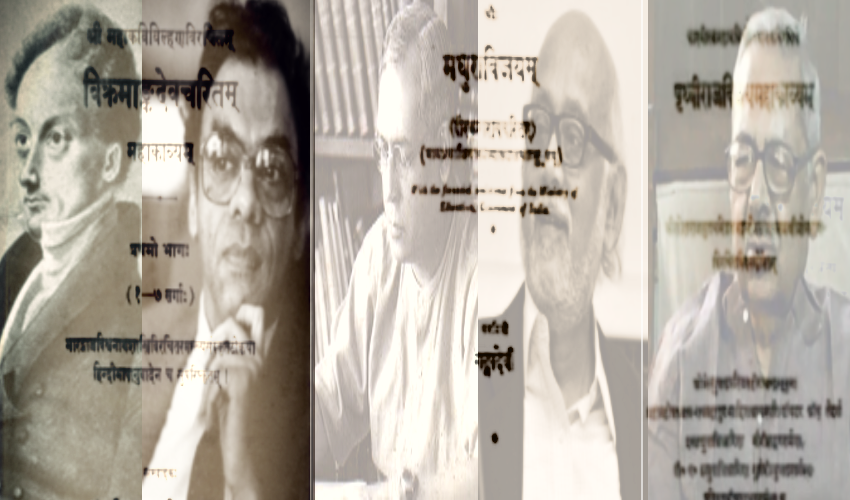
|
c. 700 - 1400 AD |
| A Historian Recommends: Representing the ‘Other’ in Indian History | |
| c. 800 - 900 CE | |
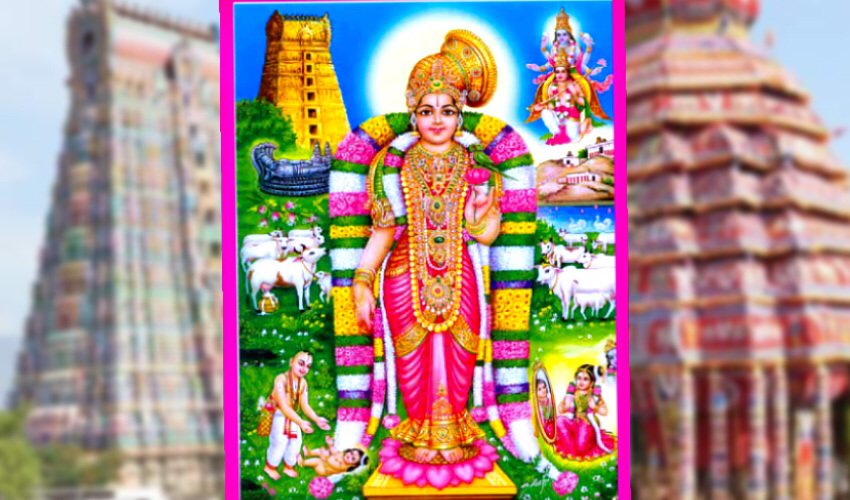
|
c. 800 - 900 CE |
| ‘Drape me in his scent’: Female Sexuality and Devotion in Andal, the Goddess | |
| 1192 | |
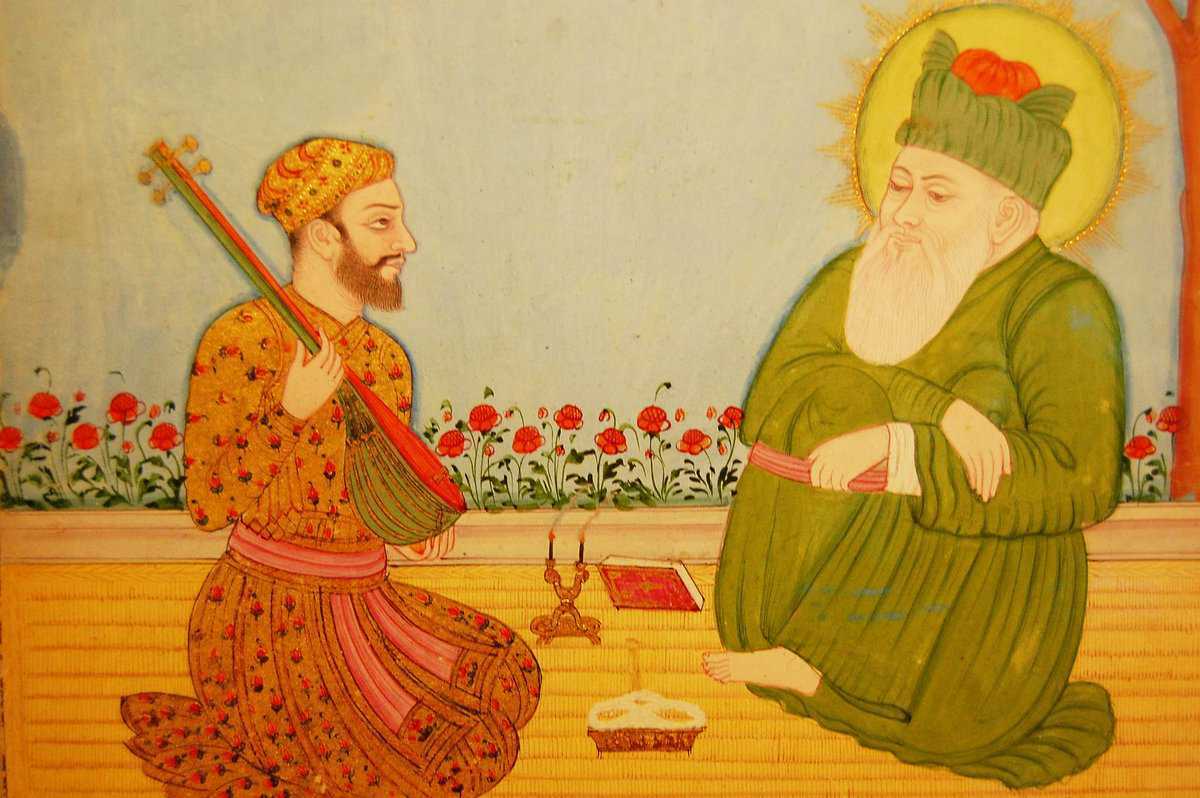
|
1192 |
| Sufi Silsilahs: The Mystic Orders in India | |
| 1200 - 1850 | |
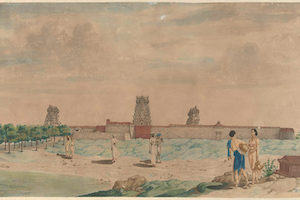
|
1200 - 1850 |
| Temples, deities, and the law. | |
| c. 1500 - 1600 AD | |
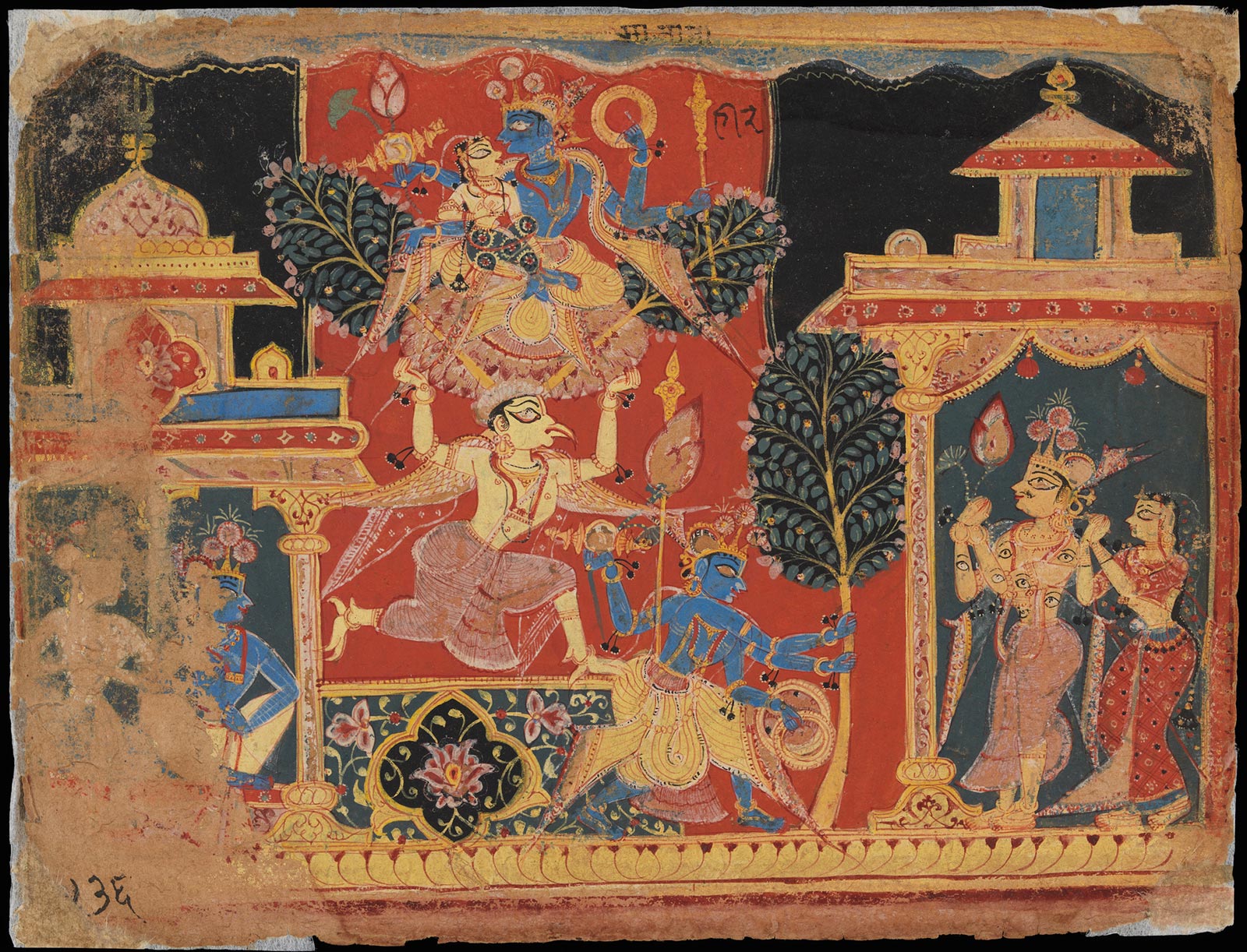
|
c. 1500 - 1600 AD |
| A Historian Recommends: Religion in Mughal India | |
| 1200-2020 | |
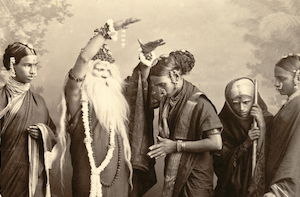
|
1200-2020 |
| Policing Untouchables and Producing Tamasha in Maharashtra | |
| 1530-1858 | |

|
1530-1858 |
| Rajputs, Mughals and the Handguns of Hindustan | |
| 1575 | |
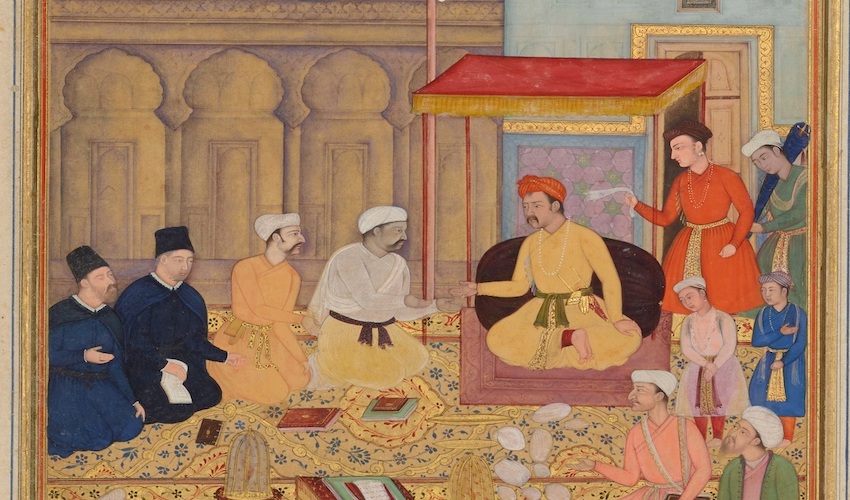
|
1575 |
| Abdul Qadir Badauni & Abul Fazl: Two Mughal Intellectuals in King Akbar‘s Court | |
| 1579 | |
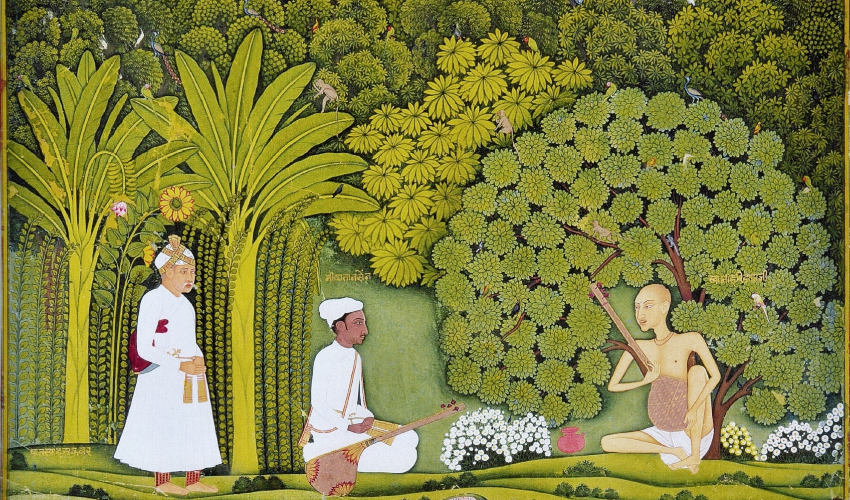
|
1579 |
| Padshah-i Islam | |
| 1550-1800 | |
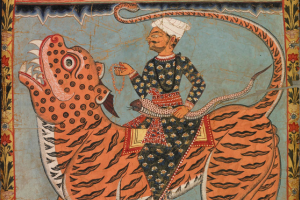
|
1550-1800 |
| Who are the Bengal Muslims? : Conversion and Islamisation in Bengal | |
| c. 1600 CE-1900 CE | |
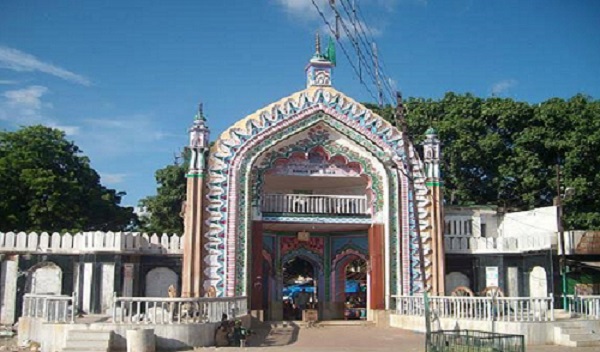
|
c. 1600 CE-1900 CE |
| The Birth of a Community: UP’s Ghazi Miyan and Narratives of ‘Conquest’ | |
| 1553 - 1900 | |
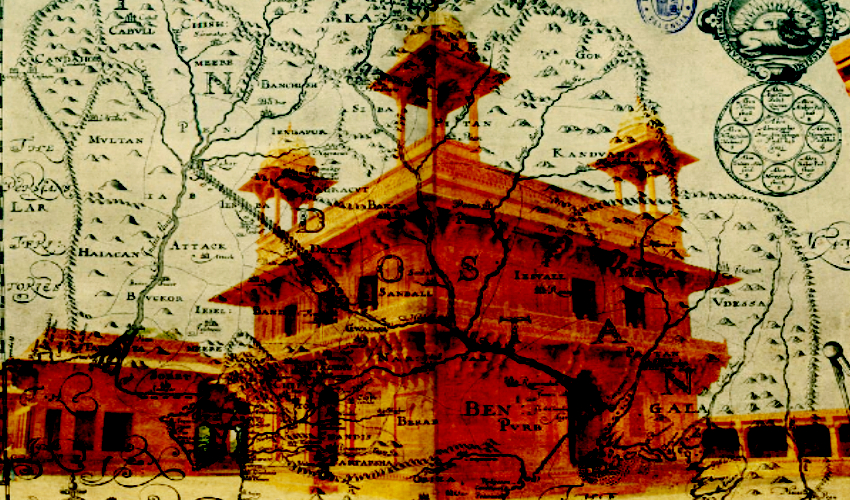
|
1553 - 1900 |
| What Happened to ‘Hindustan’? | |
| 1630-1680 | |
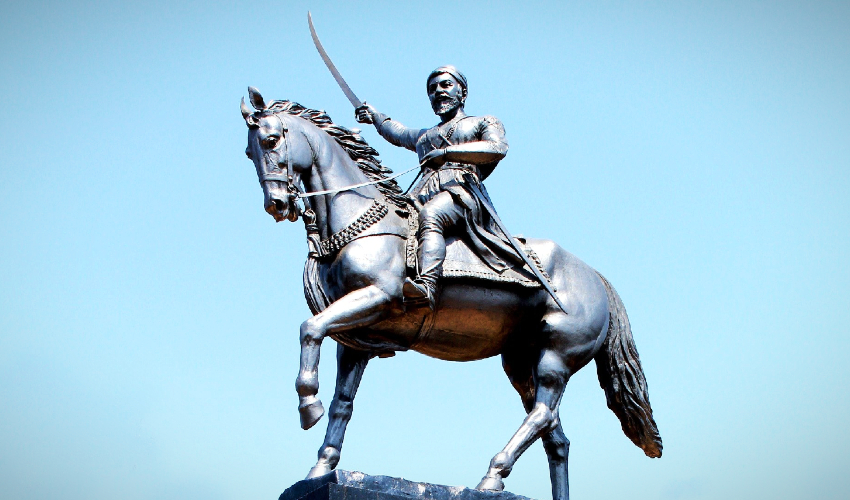
|
1630-1680 |
| Shivaji: Hindutva Icon or Secular Nationalist? | |
| 1630 -1680 | |
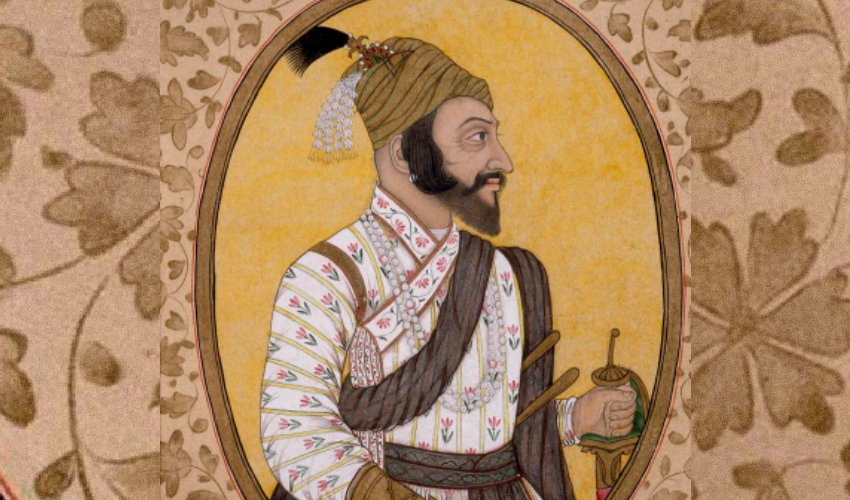
|
1630 -1680 |
| Shivaji: His Legacy & His Times | |
| c. 1724 – 1857 A.D. | |

|
c. 1724 – 1857 A.D. |
| Bahu Begum and the Gendered Struggle for Power | |
| 1818 - Present | |
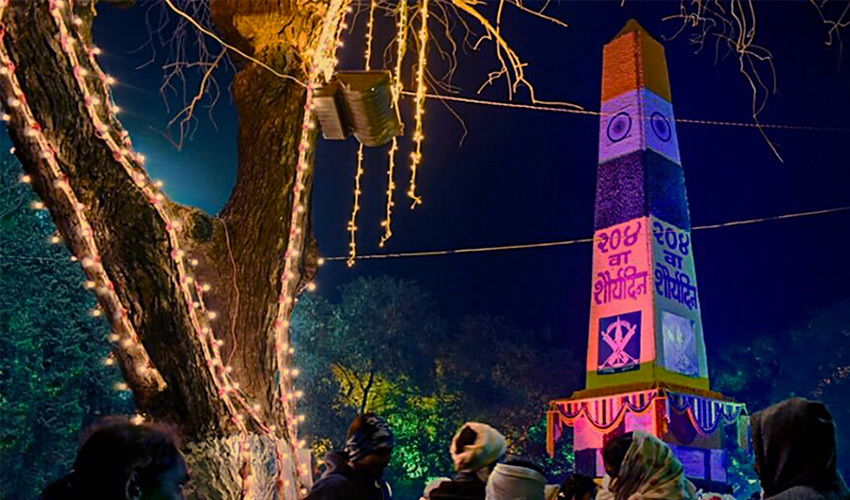
|
1818 - Present |
| The Contesting Memories of Bhima-Koregaon | |
| 1831 | |
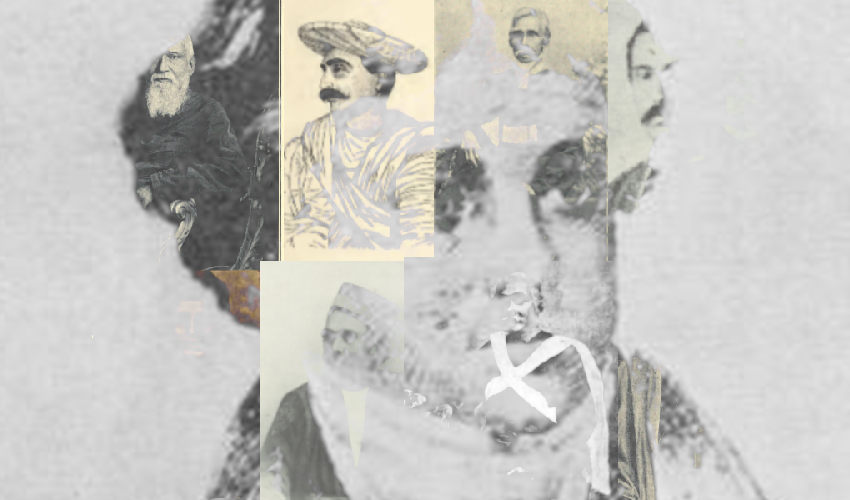
|
1831 |
| The Derozians’ India | |
| 1855 | |
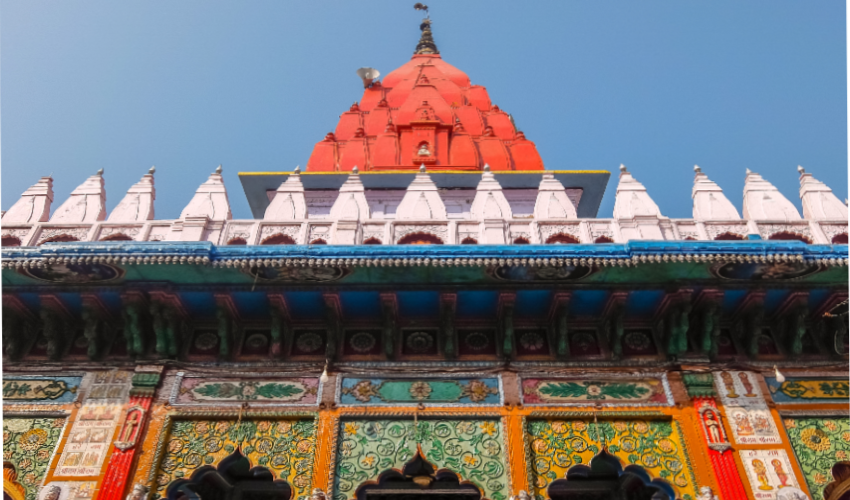
|
1855 |
| Ayodhya 1855 | |
| 1856 | |
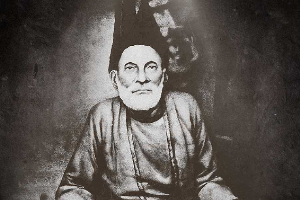
|
1856 |
| “Worshipping the dead is not an auspicious thing” — Ghalib | |
| 1857 | |
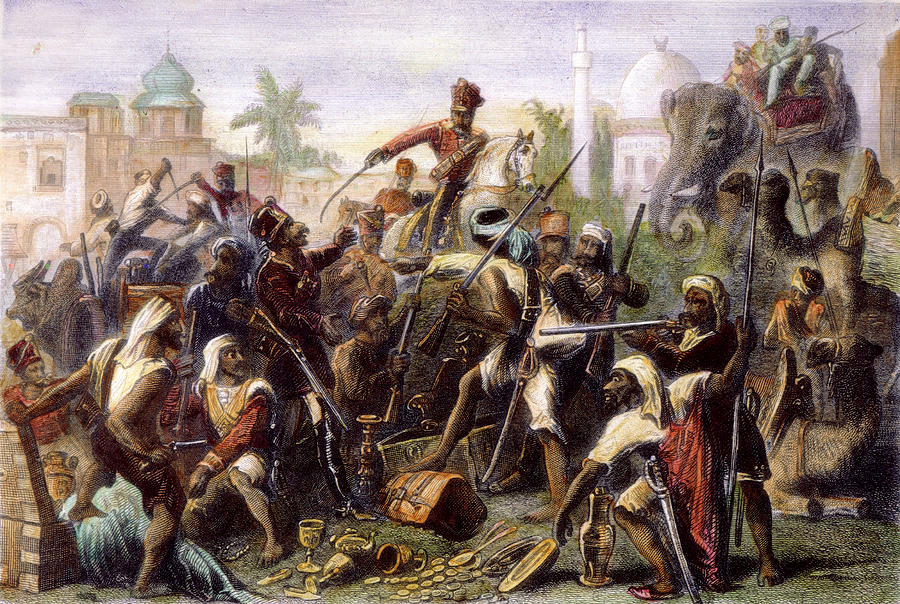
|
1857 |
| A Subaltern speaks: Dalit women’s counter-history of 1857 | |
| 1858 - 1976 | |
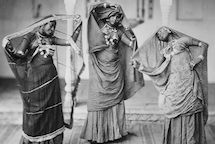
|
1858 - 1976 |
| Lifestyle as Resistance: The Curious Case of the Courtesans of Lucknow | |
| 1883 - 1894 | |
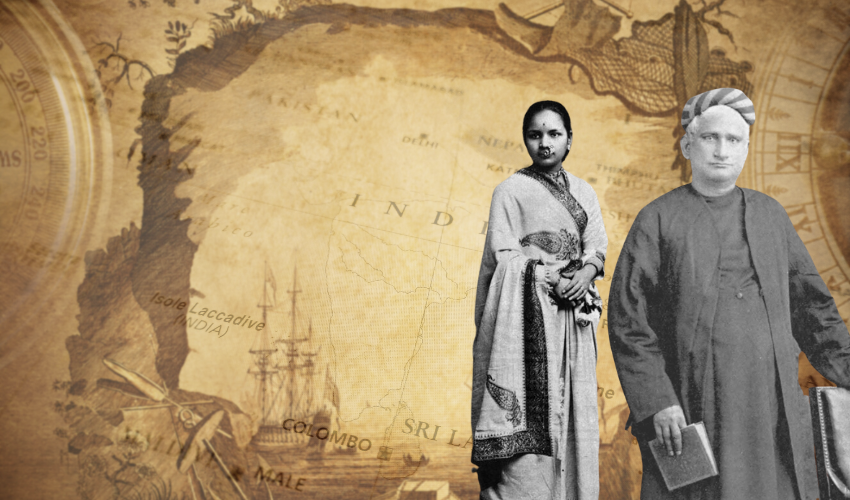
|
1883 - 1894 |
| The Sea Voyage Question: A Nineteenth century Debate | |
| 1887 | |
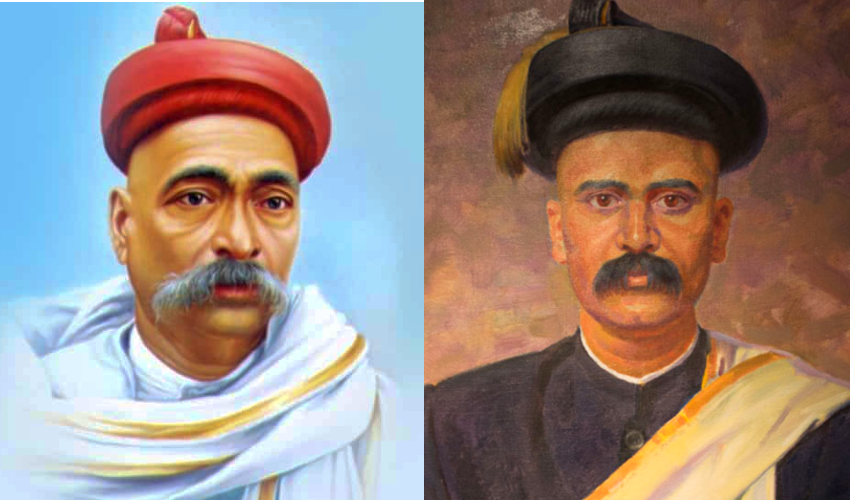
|
1887 |
| The Great Debaters: Tilak Vs. Agarkar | |
| 1893-1946 | |
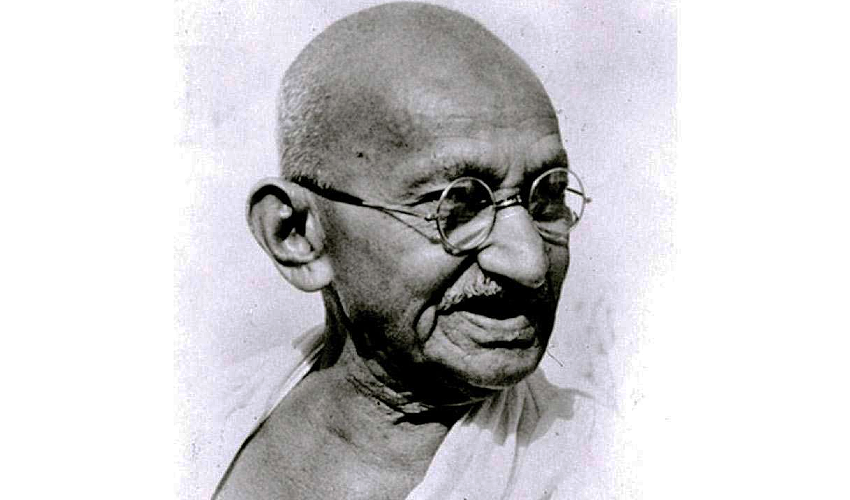
|
1893-1946 |
| A Historian Recommends: Gandhi Vs. Caste | |
| 1897 | |
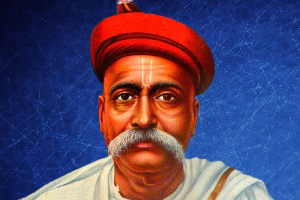
|
1897 |
| Queen Empress vs. Bal Gangadhar Tilak: An Autopsy | |
| 1913 - 1916 Modern Review | |
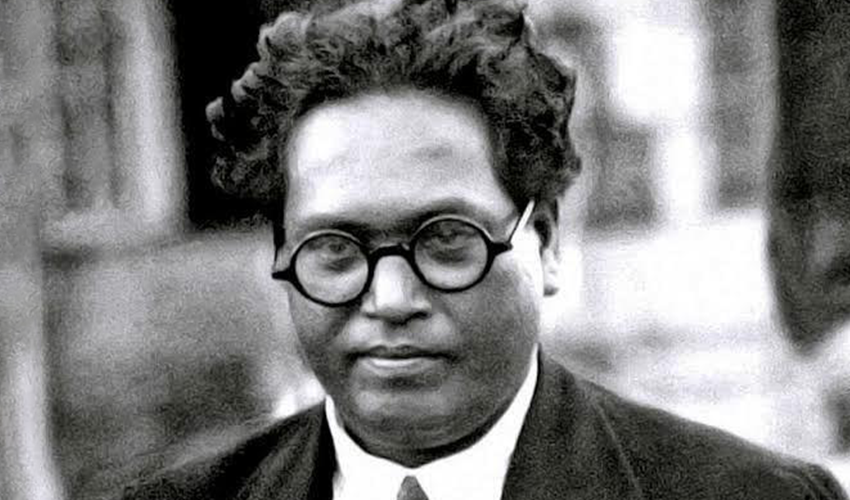
|
1913 - 1916 |
| A Young Ambedkar in New York | |
| 1916 | |
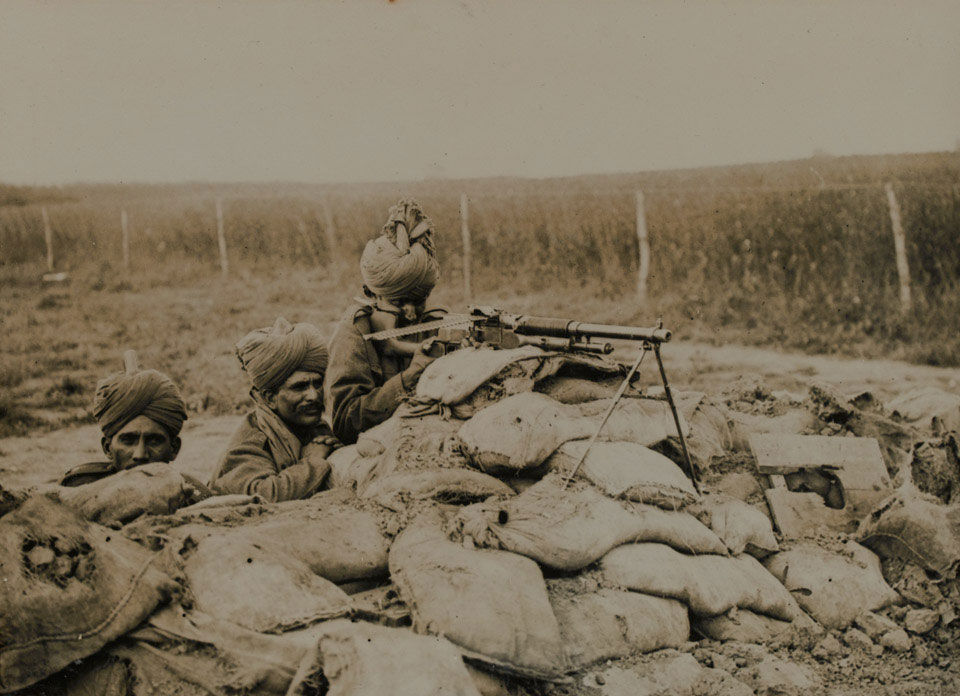
|
1916 |
| A Rare Account of World War I by an Indian Soldier | |
| 1917 | |
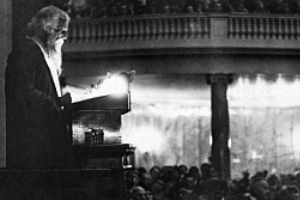
|
1917 |
| On Nationalism, by Tagore | |
| 1918 - 1919 | |
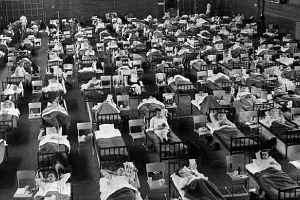
|
1918 - 1919 |
| What Happened to the Virus That Caused the World’s Deadliest Pandemic? | |
| 1920 - 1947 | |
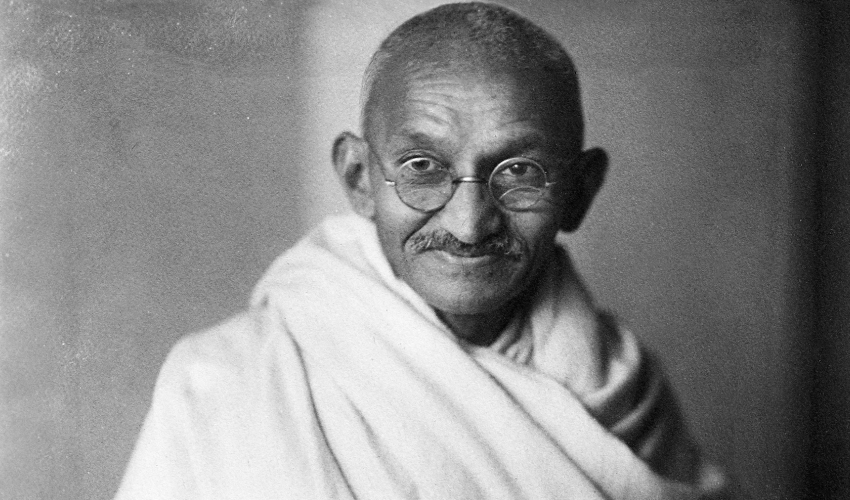
|
1920 - 1947 |
| How One Should Celebrate Diwali, According to Gandhi | |
| 1921 | |
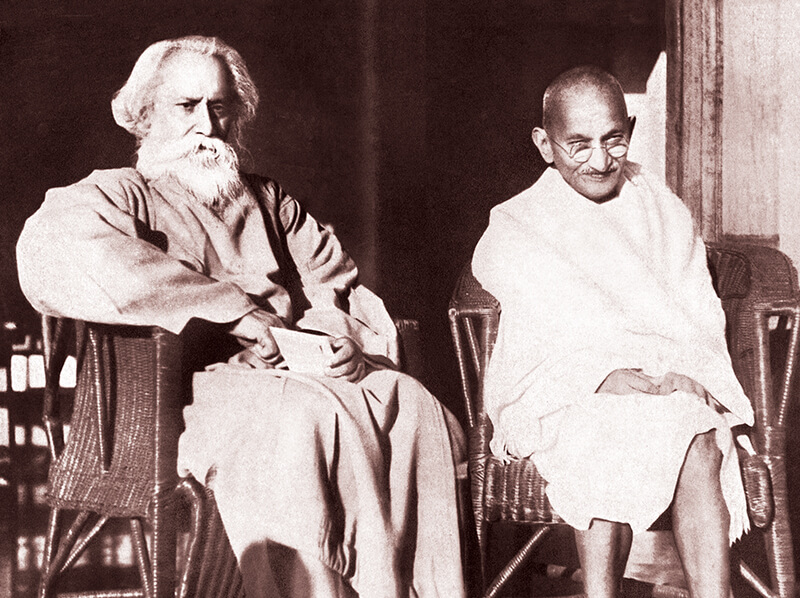
|
1921 |
| Great Debates: Tagore Vs. Gandhi (1921) | |
| 1921 - 2015 | |
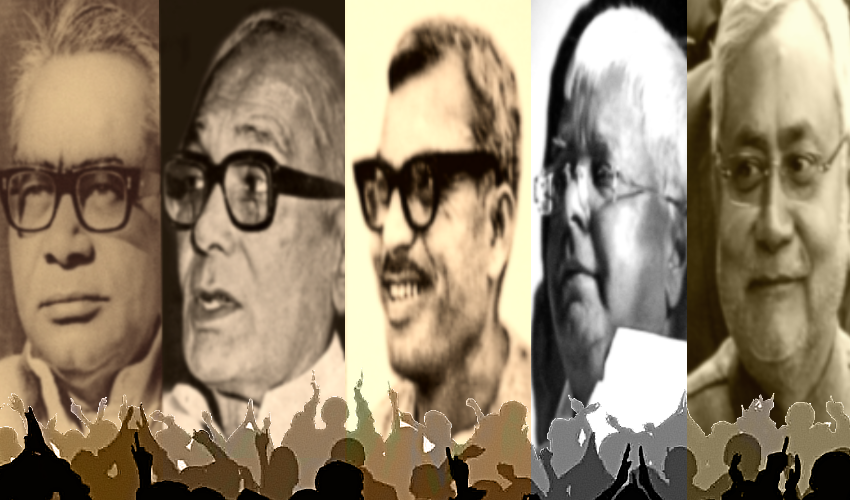
|
1921 - 2015 |
| A History of Caste Politics and Elections in Bihar | |
| 1915-1921 | |
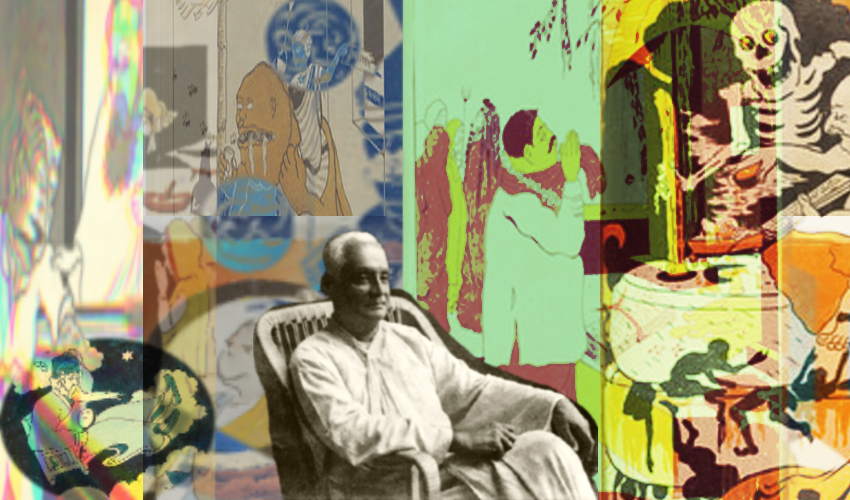
|
1915-1921 |
| The Satirical Genius of Gaganendranath Tagore | |
| 1924-1937 | |
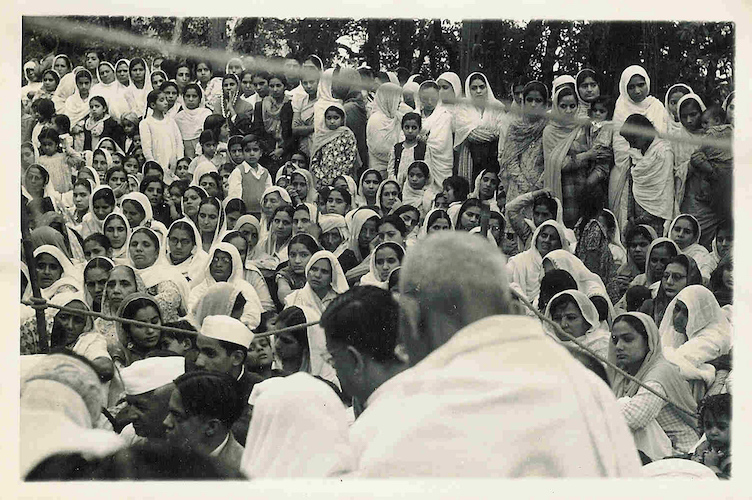
|
1924-1937 |
| What were Gandhi’s Views on Religious Conversion? | |
| 1900-1950 | |
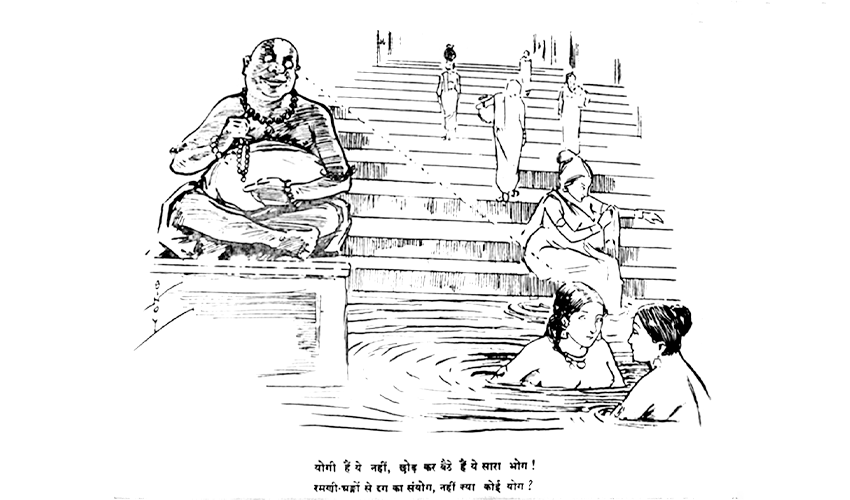
|
1900-1950 |
| Gazing at the Woman’s Body: Historicising Lust and Lechery in a Patriarchal Society | |
| 1925, 1926 | |
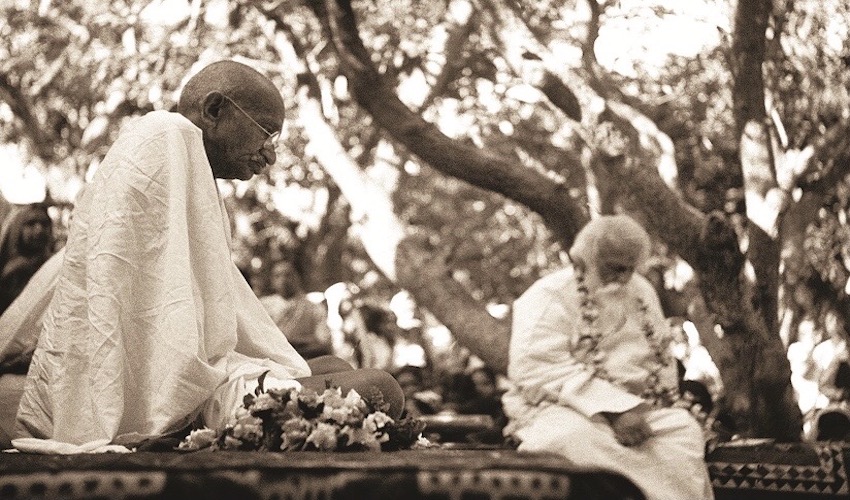
|
1925, 1926 |
| Great Debates: Tagore vs Gandhi (1925-1926) | |
| 1928 | |
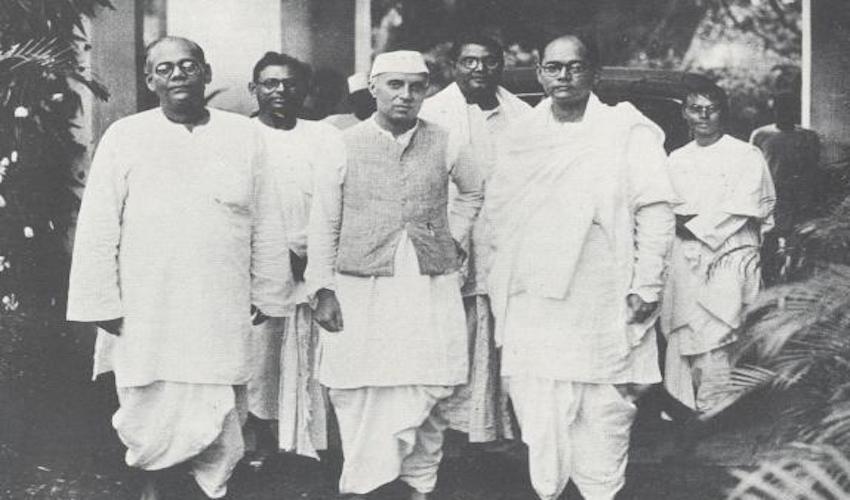
|
1928 |
| Bhagat Singh’s dilemma: Nehru or Bose? | |
| 1930 Modern Review | |
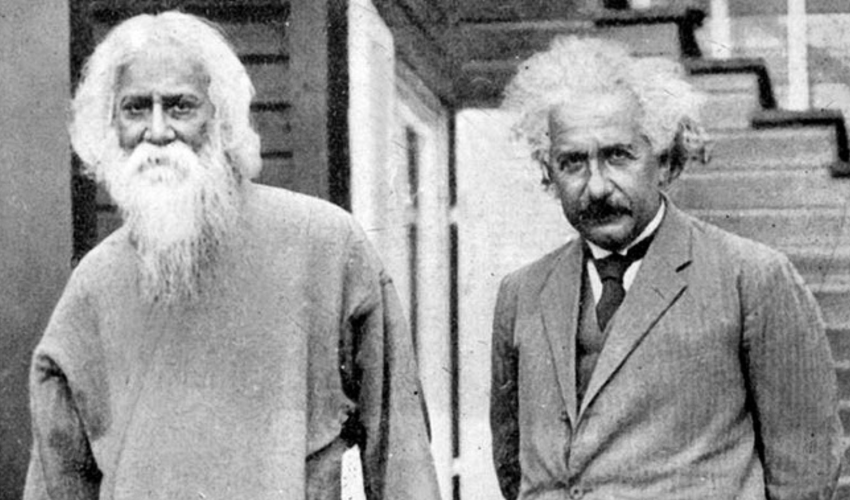
|
1930 |
| The Modern Review Special: On the Nature of Reality | |
| 1932 | |
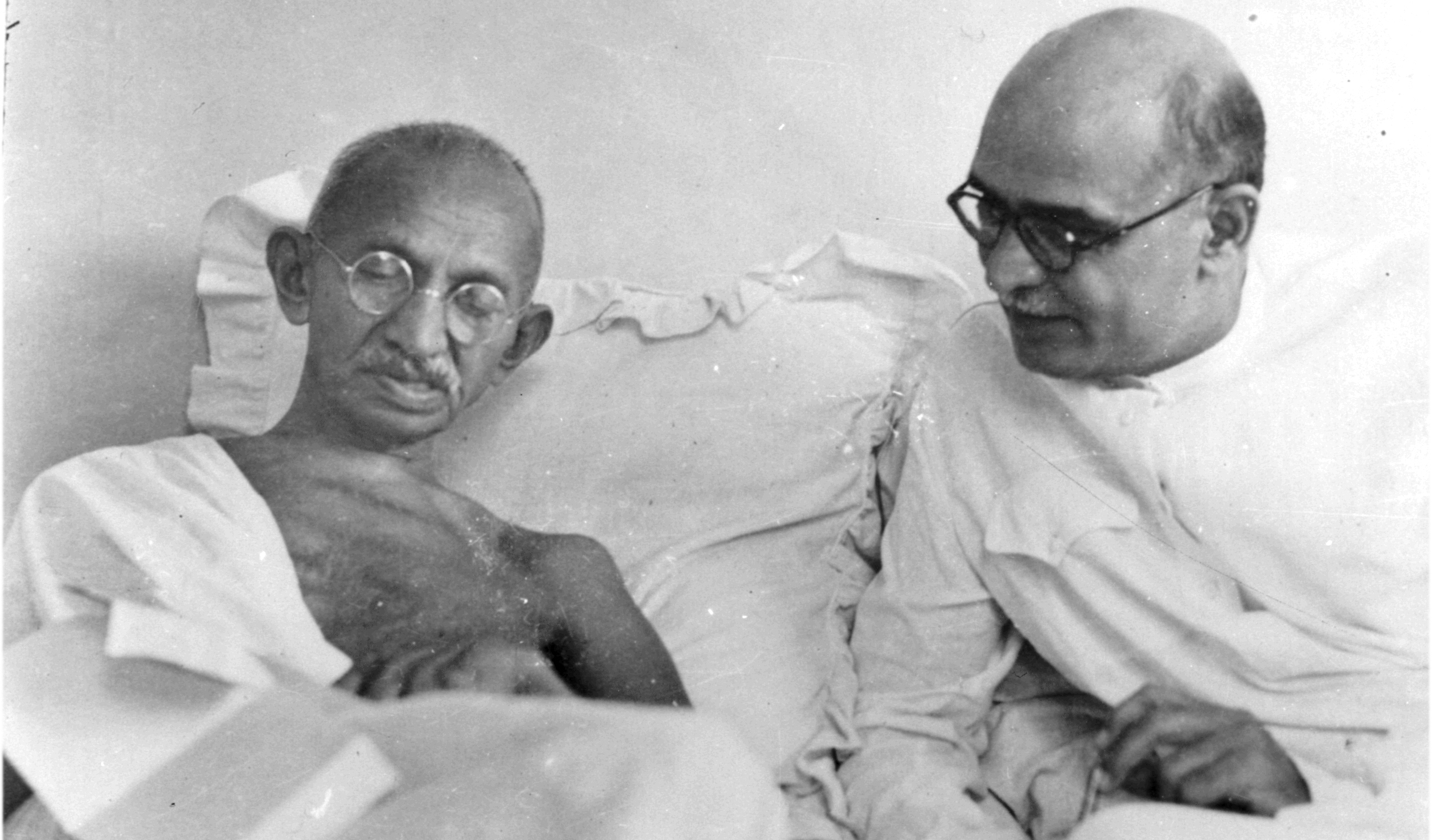
|
1932 |
| Caste, Gandhi and the Man Beside Gandhi | |
| 1933 - 1991 | |
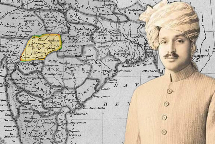
|
1933 - 1991 |
| Raghubir Sinh: The Prince Who Would Be Historian | |
| 1935 | |
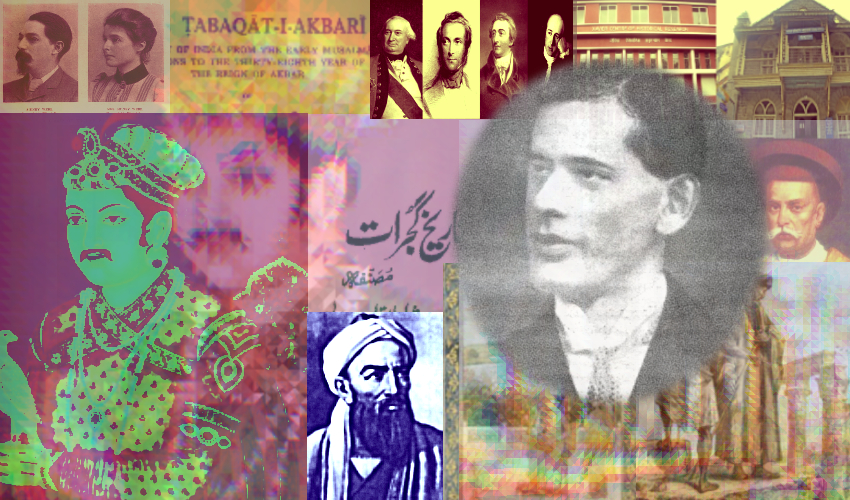
|
1935 |
| A Historian Recommends: SA Khan’s Timeless Presidential Address | |
| 1865-1928 | |
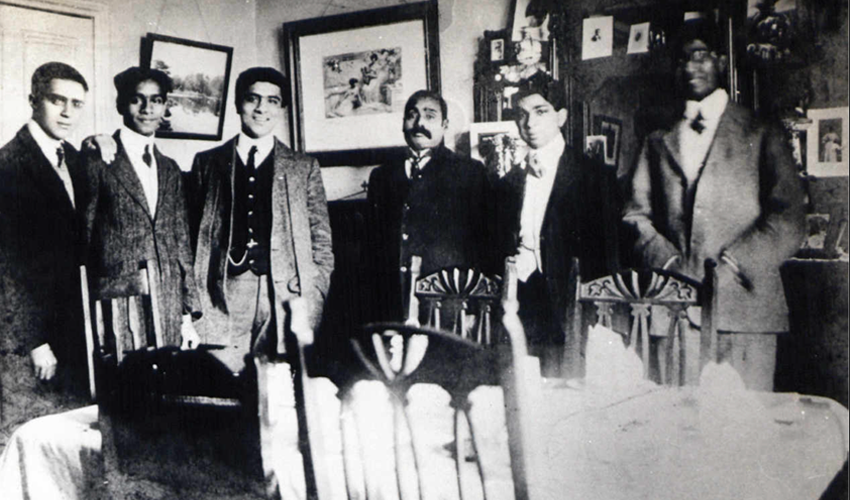
|
1865-1928 |
| Understanding Lajpat Rai’s Hindu Politics and Secularism | |
| 1935 Modern Review | |
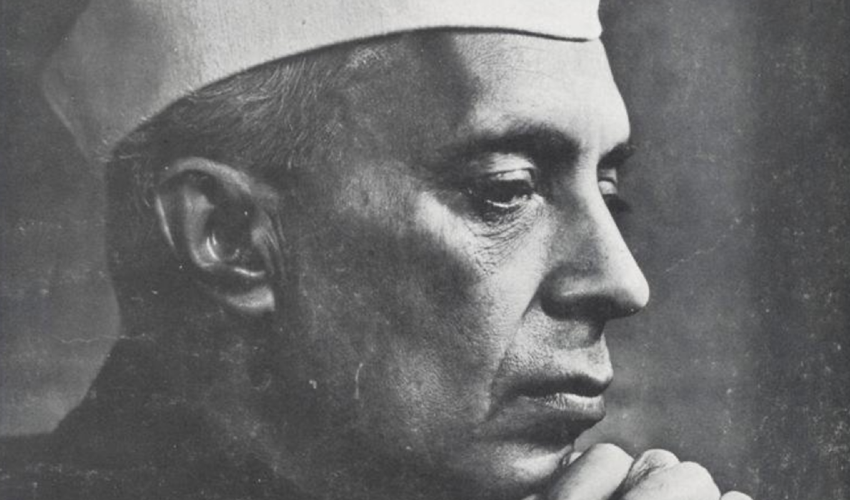
|
1935 |
| The Modern Review Special: The Mind of a Judge | |
| 1936 Modern Review | |
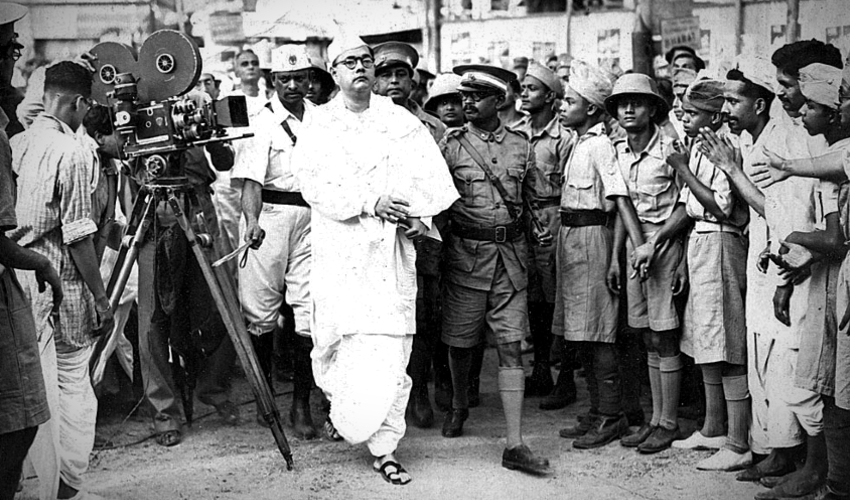
|
1936 |
| The Modern Review Special: When Netaji Subhas Bose Was Wrongfully Detained for ‘Terrorism’ | |
| 1936 | |

|
1936 |
| Annihilation of Caste: Part 1 | |
| 1936 Modern Review | |

|
1936 |
| The Modern Review Special: An Indian MP in the British Parliament | |
| 1936 | |
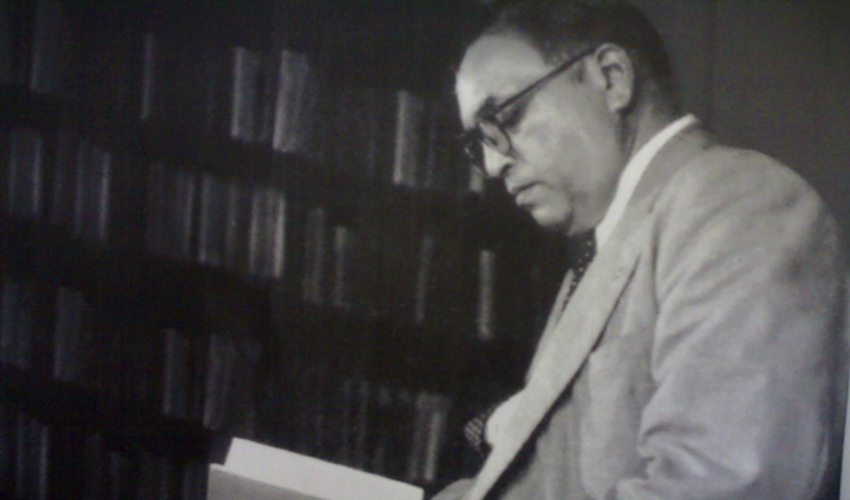
|
1936 |
| Annihilation of Caste: Part 2 | |
| 1936 | |

|
1936 |
| A Reflection of His Age: Munshi Premchand on the True Purpose of Literature | |
| 1936 Modern Review | |
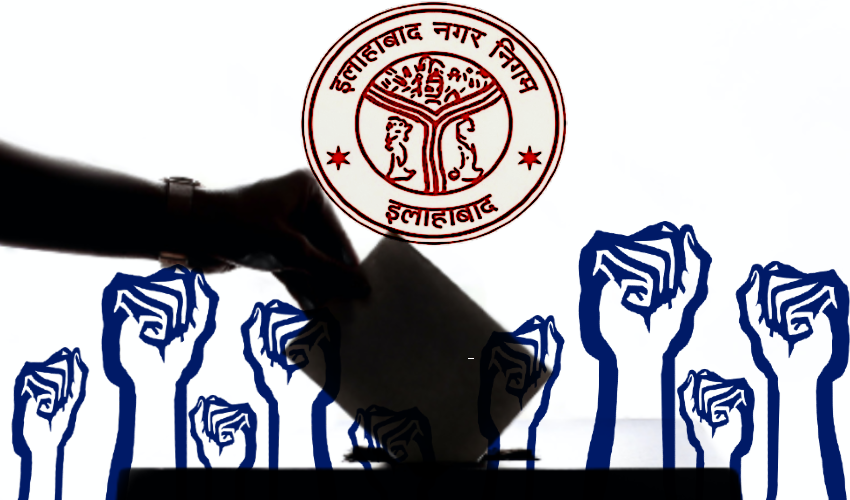
|
1936 |
| The Modern Review Special: The Defeat of a Dalit Candidate in a 1936 Municipal Election | |
| 1937 Modern Review | |
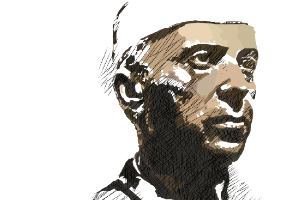
|
1937 |
| The Modern Review Special: Rashtrapati | |
| 1938 | |
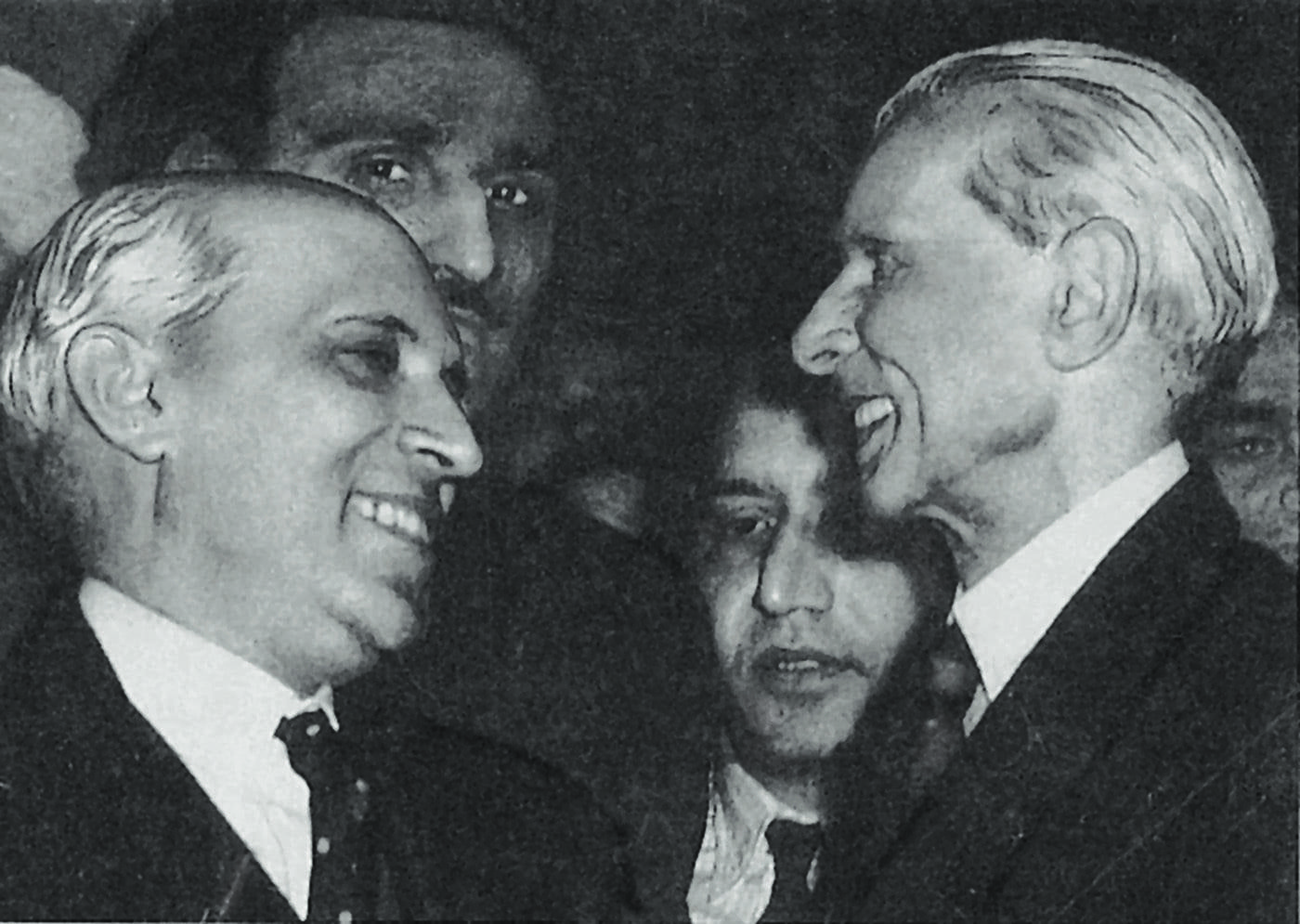
|
1938 |
| Great Debates: Nehru Vs. Jinnah (1938) | |
| 1942 Modern Review | |
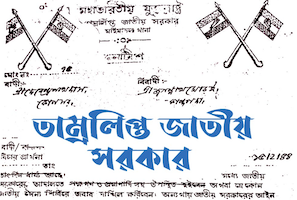
|
1942 |
| IHC Uncovers: A Parallel Government In British India (Part 1) | |
| 1942-1945 | |
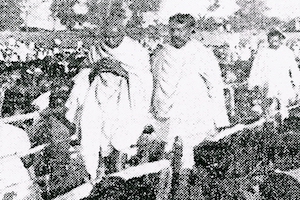
|
1942-1945 |
| IHC Uncovers: A Parallel Government in British India (Part 2) | |
| 1946 | |
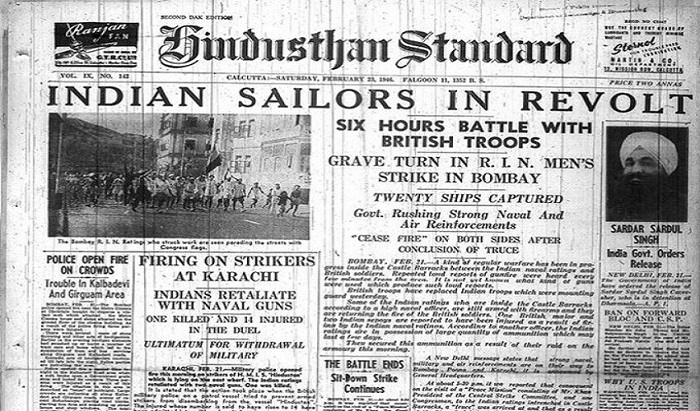
|
1946 |
| Our Last War of Independence: The Royal Indian Navy Mutiny of 1946 | |
| 1946 | |
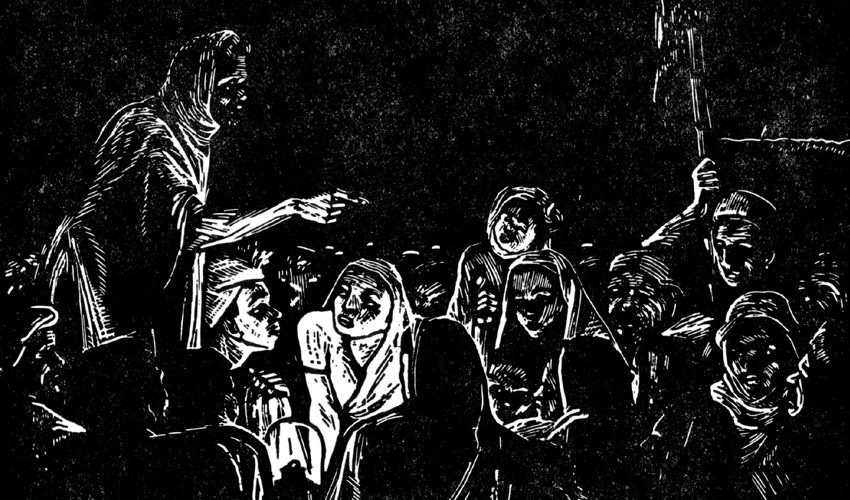
|
1946 |
| An Artist’s Account of the Tebhaga Movement in Pictures And Prose | |
| 1946 – 1947 | |
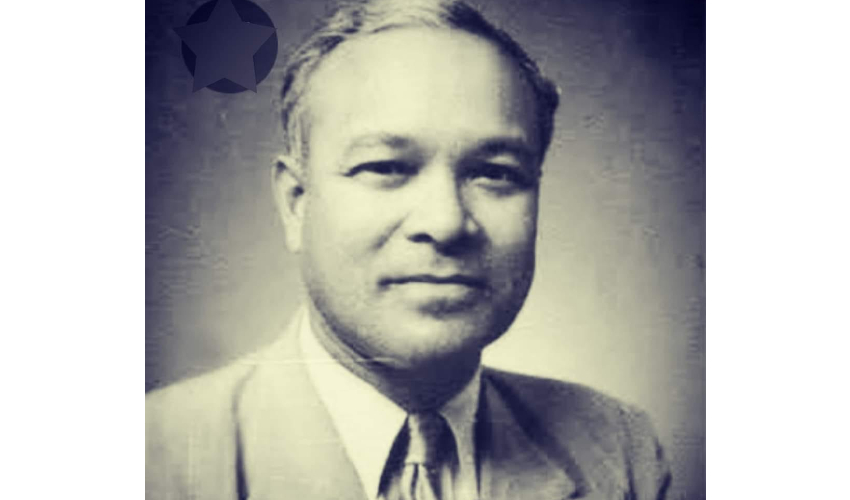
|
1946 – 1947 |
| “The Most Democratic People on Earth” : An Adivasi Voice in the Constituent Assembly | |
| 1946-1947 | |
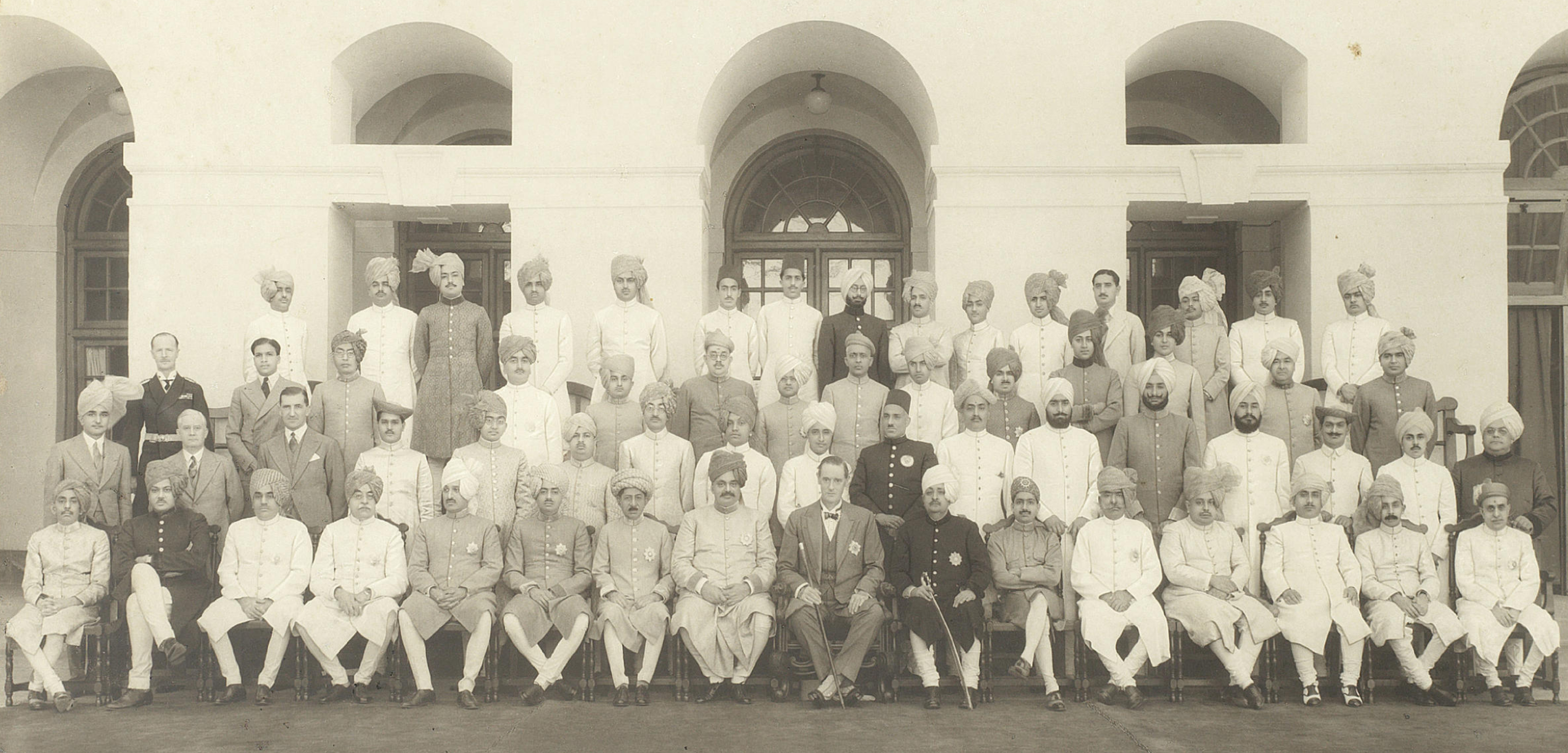
|
1946-1947 |
| VP Menon and the Birth of Independent India | |
| 1916 - 1947 | |
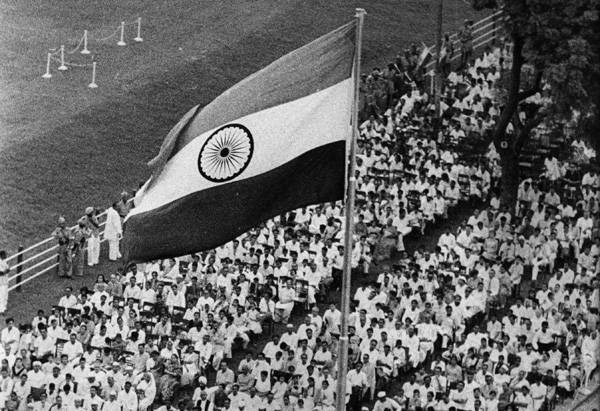
|
1916 - 1947 |
| 8 @ 75: 8 Speeches Independent Indians Must Read | |
| 1947-1951 | |
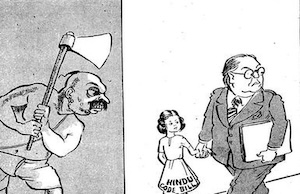
|
1947-1951 |
| Ambedkar Cartoons: The Joke’s On Us | |
| 1948 | |

|
1948 |
| “My Father, Do Not Rest” | |
| 1940-1960 | |

|
1940-1960 |
| Integration Myth: A Silenced History of Hyderabad | |
| 1948 | |
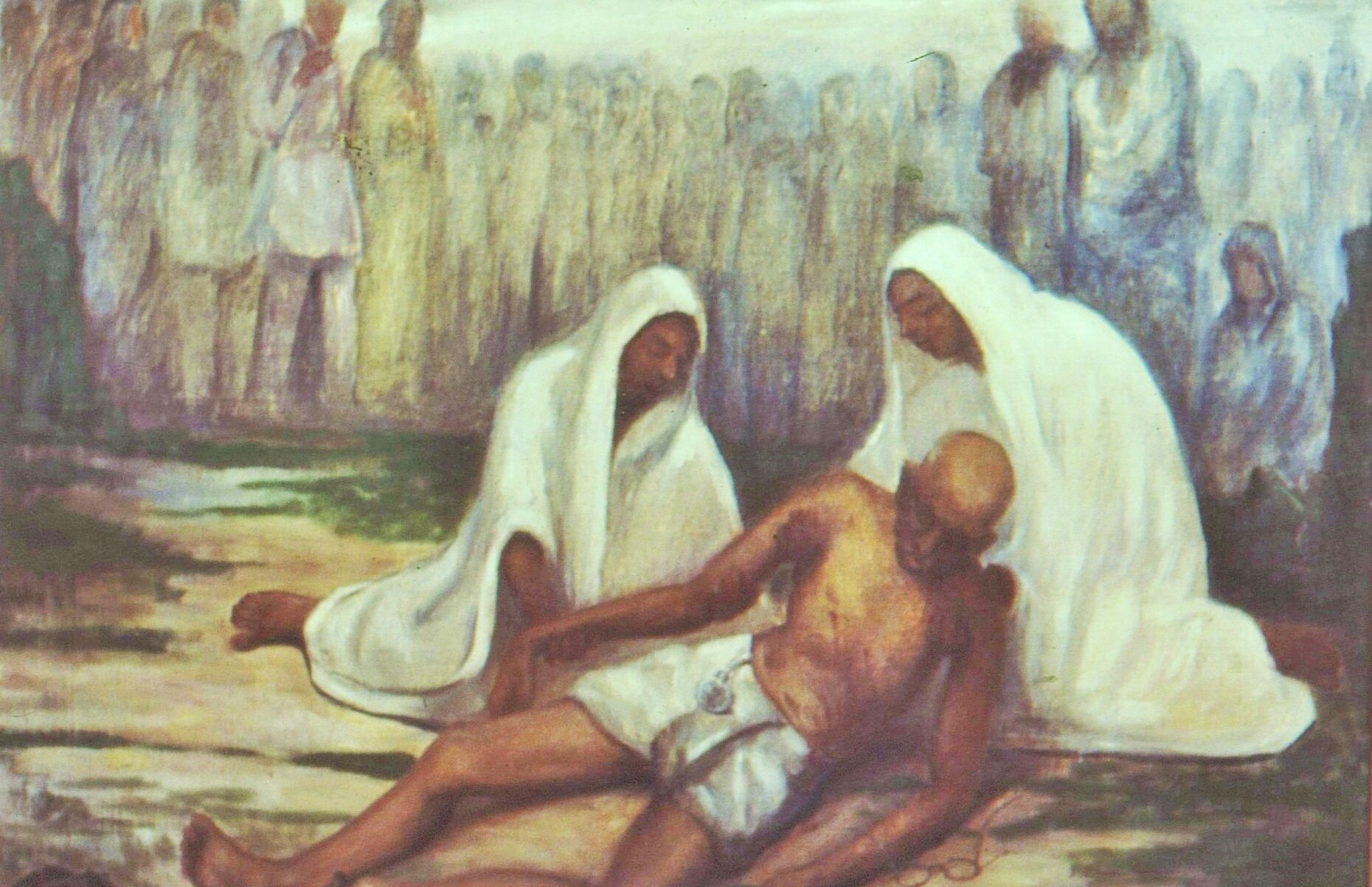
|
1948 |
| The Assassination of a Mahatma, the Princely States and the ‘Hindu’ Nation | |
| 1949 | |
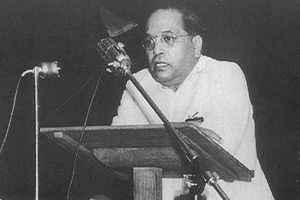
|
1949 |
| Ambedkar warns against India becoming a ‘Democracy in Form, Dictatorship in Fact’ | |
| 1950 | |
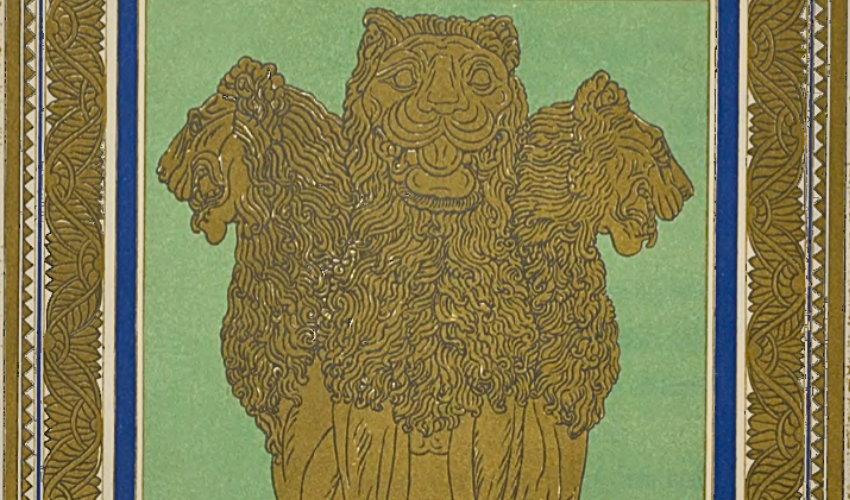
|
1950 |
| Illustrations from the constitution | |
| 1951 | |
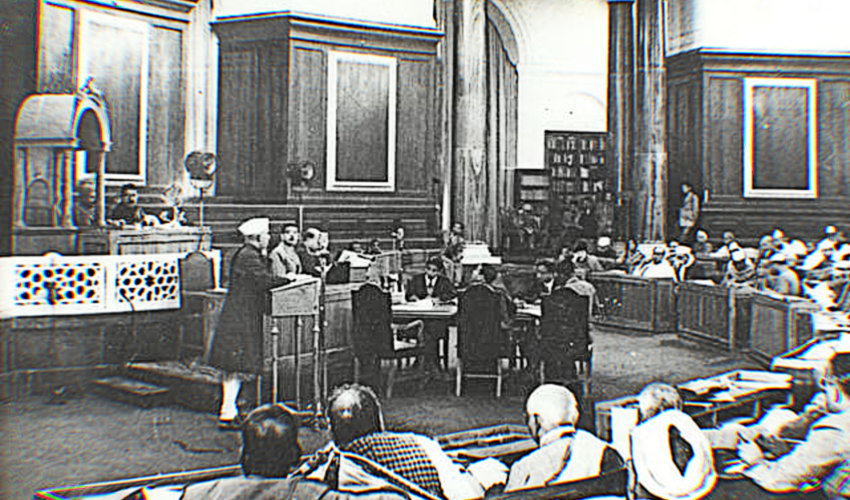
|
1951 |
| How the First Amendment to the Indian Constitution Circumscribed Our Freedoms & How it was Passed | |
| 1967 | |
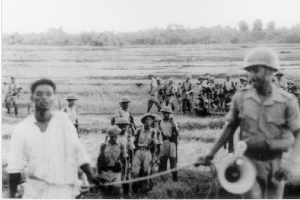
|
1967 |
| Once Upon A Time In Naxalbari | |
| 1970 | |
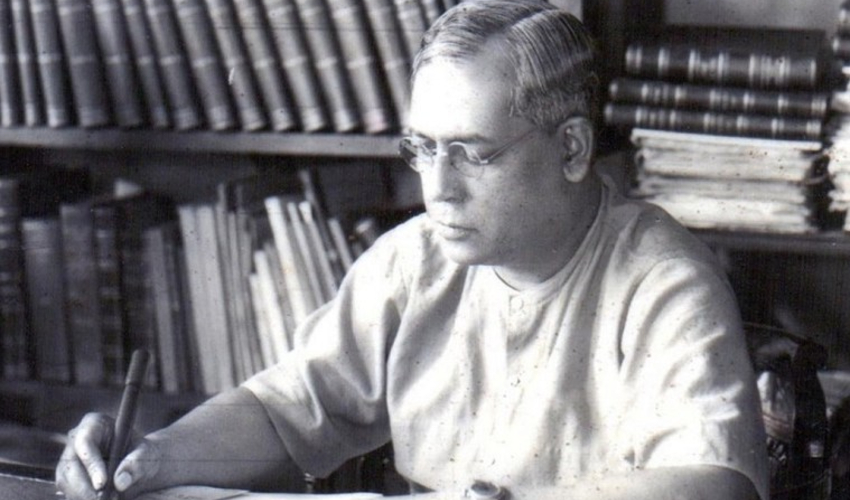
|
1970 |
| R.C. Majumdar on Shortcomings in Indian Historiography | |
| 1973 - 1993 | |
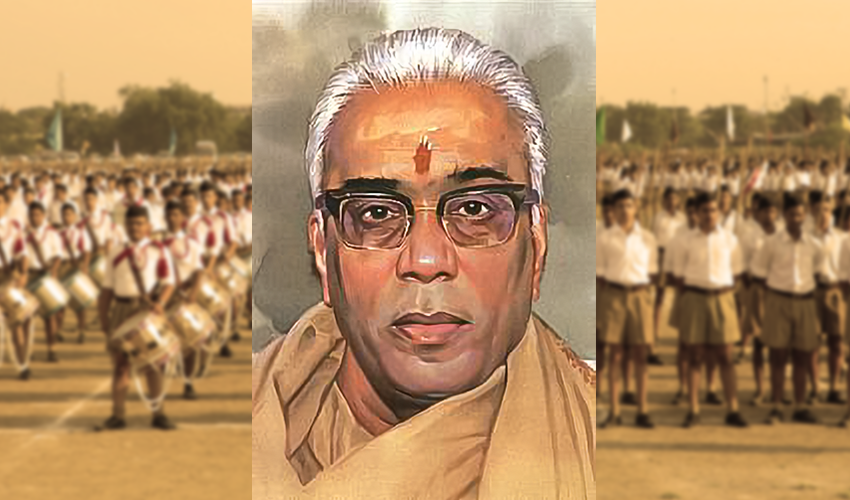
|
1973 - 1993 |
| Balasaheb Deoras: Kingmaker of the Sangh | |
| 1975 | |
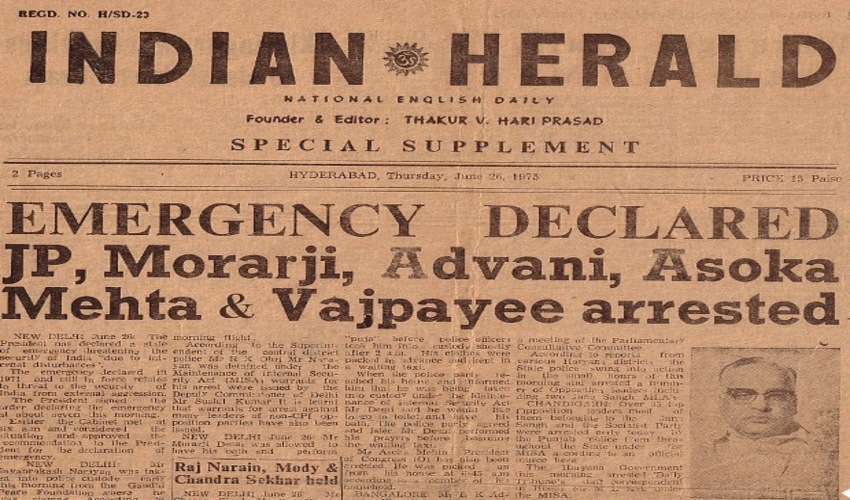
|
1975 |
| The Emergency Package: Shadow Power | |
| 1975 | |
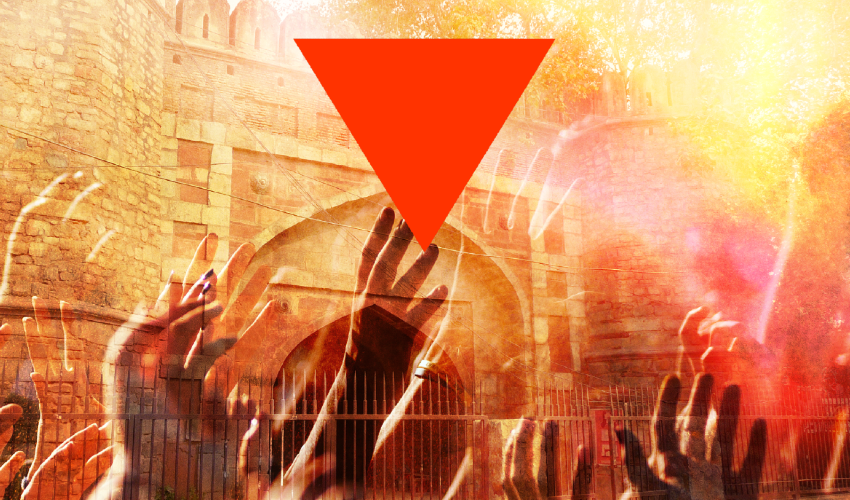
|
1975 |
| The Emergency Package: The Prehistory of Turkman Gate – Population Control | |
| 1977 – 2011 | |
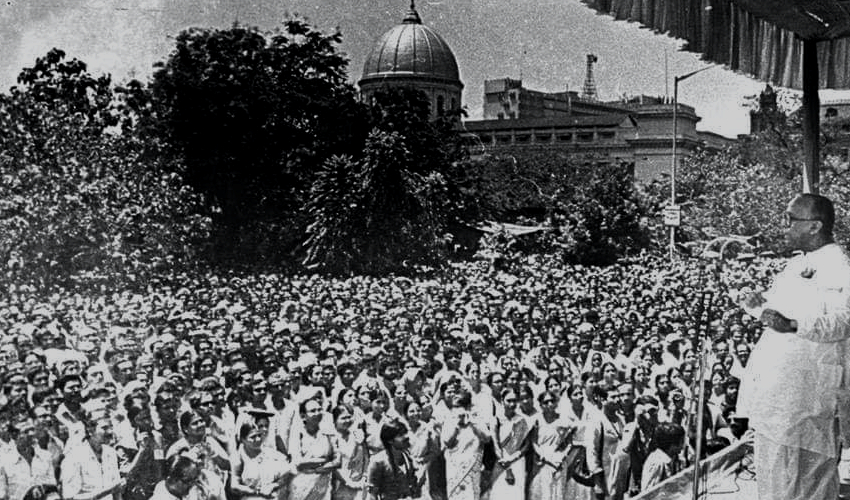
|
1977 – 2011 |
| Power is an Unforgiving Mistress: Lessons from the Decline of the Left in Bengal | |
| 1984 | |
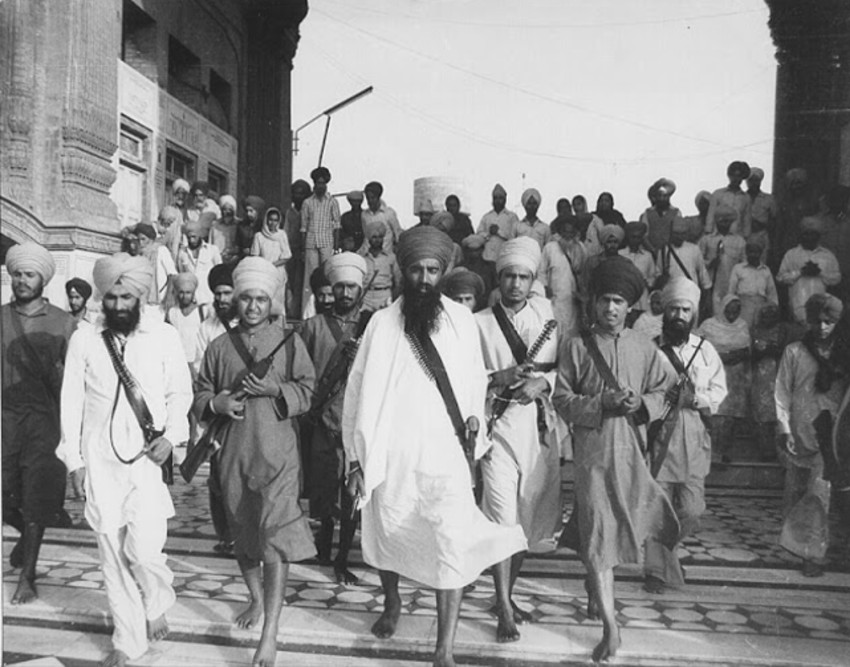
|
1984 |
| Mrs Gandhi’s Final Folly: Operation Blue Star | |
| 1916-2004 | |
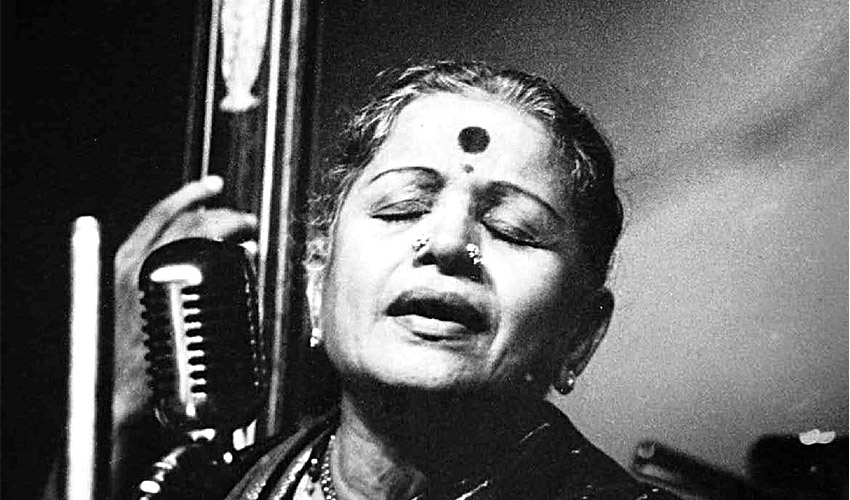
|
1916-2004 |
| Amjad Ali Khan on M.S. Subbulakshmi: “A Glorious Chapter for Indian Classical Music” | |
| 2008 | |
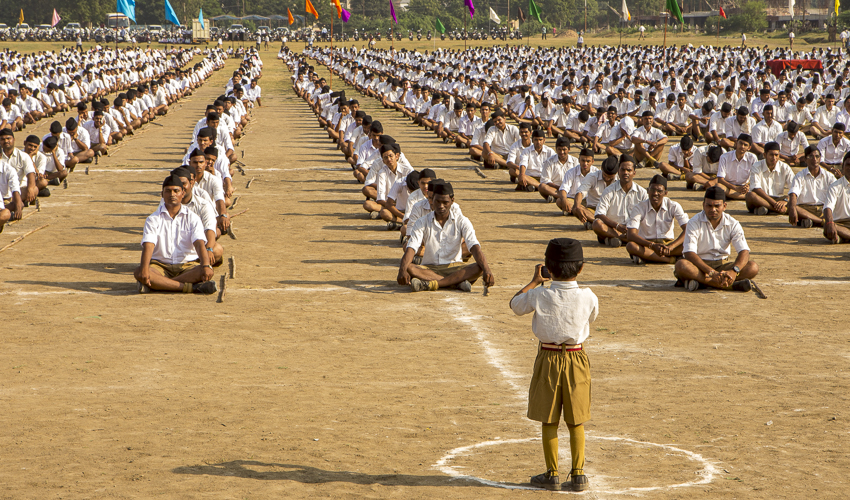
|
2008 |
| Whose History Textbook Is It Anyway? | |
| 2006 - 2009 | |
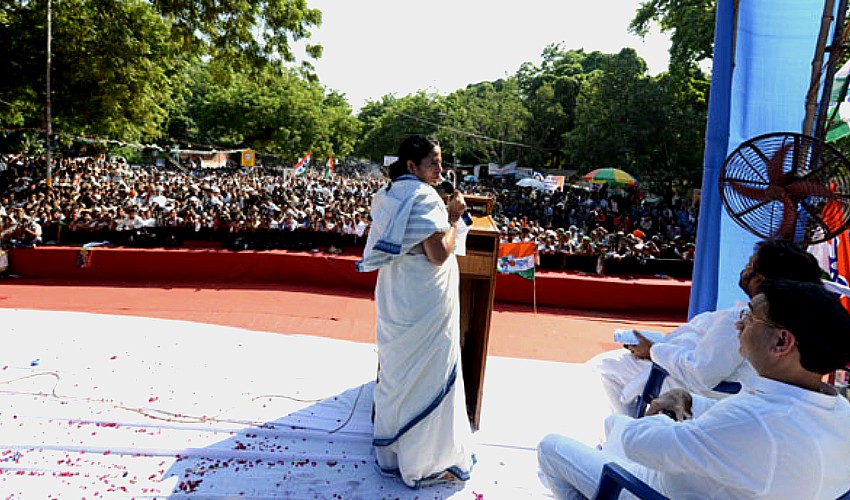
|
2006 - 2009 |
| Singur-Nandigram-Lalgarh: Movements that Remade Mamata Banerjee | |
| 2020 | |
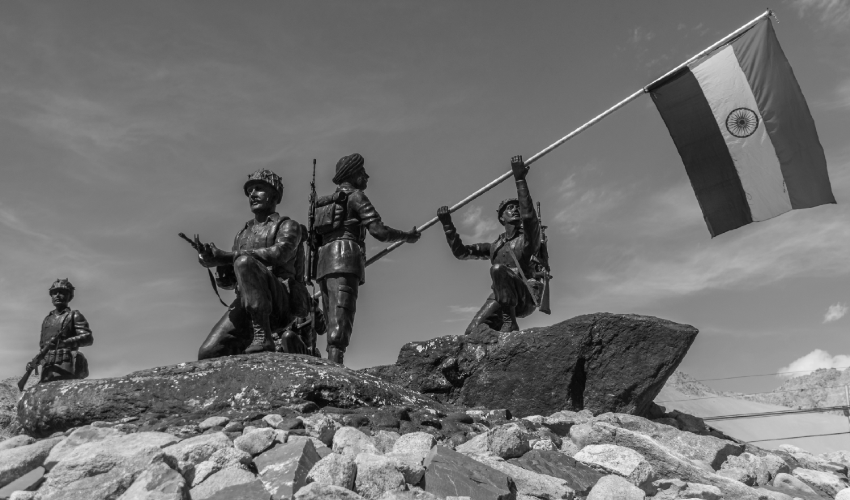
|
2020 |
| The Indo-China Conflict: 10 Books We Need To Read | |
| 2021 | |
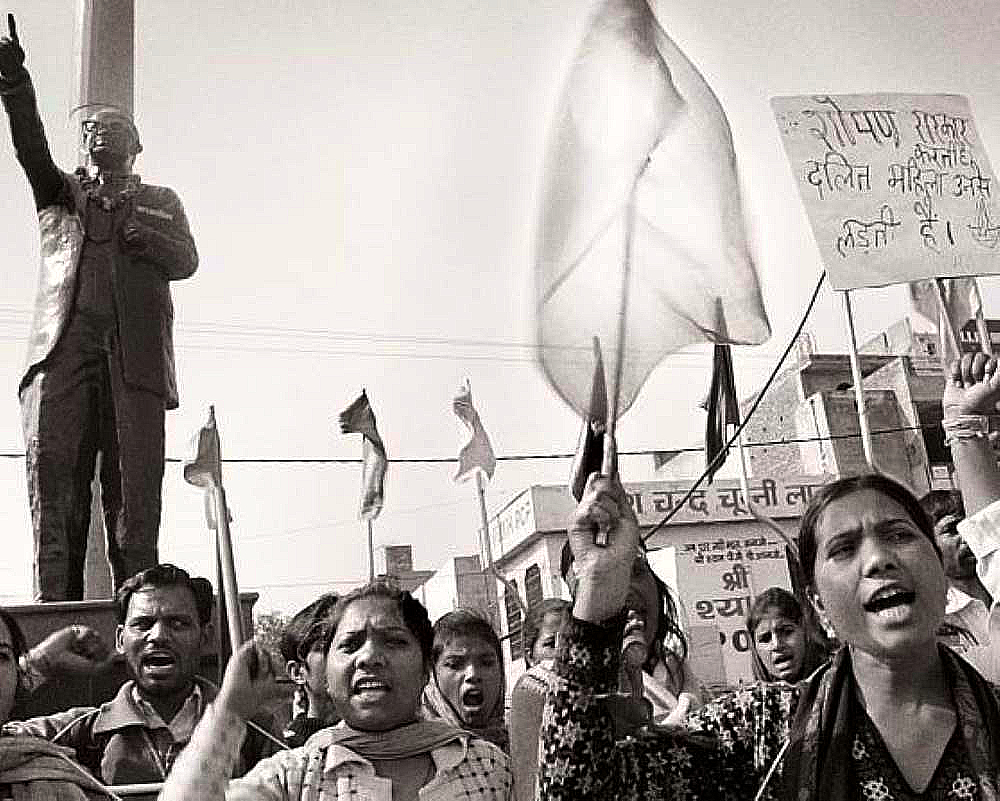
|
2021 |
| Singing/Writing Liberation: Dalit Women’s Narratives | |